Knowledge.ToString()

Software Developer Career Day Presentation for Elementary School
Last year I participated in a Career Day at school to show what Software Developer is and what they do. I created PowerPoint to make it interesting for the 1st grade kids. Presentation ended with an interactive programming session in which kids programmed a dumb robot i.e. me to complete a task of throwing a paper into a trash can.
Presentation Time : 20 Minutes
Items Needed
- PowerPoint presentation
- Small trash can
- Crumbled papers (blank/used/newspaper)
- Small reusable/plastic bag for holding trash can and crumbled papers
Presentation Overview
I had divided whole presentation into following sections
Introduction
What software developer does.
- How Software Developer is impacting everyone’s life
- Why being Software Developer is a good choice
- Question: Is computer smart or dumb?
- Interactive experiment – Program a dumb robot
Download Presentation
Slide 1: I am Vishal Monpara. I am working as a Software Developer from past xyz years.
Slide 2: How many of you played these games on a phone? ( Students will get really excited about these games). Well, do you know who creates these games? It is the Software Developer who creates these games.
Slide 3, 4, 5, 6: Software Developers feel that they are (slide 3, 4, 5). No. They feel they are (slide 6) super man and super woman.
Slide 7: For the whole day, Software Developer does “Abracadabra”. No way.
Slide 8: For the whole day, Software Developer sits in front of a computer and writes program. When Software Developer is working, s/he is facing lots of problem. When they fix problem….
Slide 9: They jump high.
How Software Developer is Impacting Everyone’s Life
Slide 10: What is a common in all these items? Well, they all require programming and Software Developer is helping create the programs so they work.
Why Being Software Developer is a Good Choice
Slide 11: Ask student: What is this? (Students will answer: Lego). Lego is my favorite. Once I have a pile of Lego, (go to next slide)
Slide 12: I can make different toys I like. Software Developer does exactly same thing. Once you know how to develop a software, you can make different things you like.
Question: Is Computer Smart or Dumb?
Slide 13: Question for you. Is computer smart or dumb? Raise your hand if you think computer is smart. Raise your hand if you think computer is dumb. Why do you think so? (Most/All of the students will say computer is smart) Let me tell you a secret. Computer is dumb. It is the Software Developer who makes computer smart. The same with phone. Even Smart phone is dumb. Software Developer makes it smart. I see a lots of Software Developer in the classroom. Let’s have an experiment. (go to next slide)
Interactive Experiment – Program a Dumb Robot
Slide 14: (You may start speaking like a robot anytime depending on your audience) Let’s pretend that I am a dumb robot. I am going to place a trash can here. You need to give instruction to robot what to do. Robot can understand only these instructions. (place trash can little bit away so that you can have forward, left, right steps and place crumbled paper at a little height so can pick up “trash” without bending your hand)
- Move forward (1 step)
- Move backward (1 step)
- Throw trash
Now ask students to provide an instructions what robot should do next. You may also give hint to student that robot does not understand certain instruction and understands only above mentioned instructions.
Initially students will struggle a bit but once they understand, they will provide accurate instruction.
Slide 15, 16, 17: Congratulations! You are the world best Software Developer. Allow some time for students to ask question.
2 responses to “Software Developer Career Day Presentation for Elementary School”
My name is Peter and I am a software engineer. I came across your kindergarten presentation after a google search. I am scheduled to do a similar career day presentation for my son’s kindergarten class. I wanted to ask your permission to use parts of the slide deck during my presentation. I think it is a great presentation.
I look forward to your reply.
Many thanks, Peter
You may use this presentation and modify as you deem appropriate.
Regards Vishal
Leave a Reply Cancel reply
Your email address will not be published. Required fields are marked *
Save my name, email, and website in this browser for the next time I comment.
- Skip to primary navigation
- Skip to main content
- Skip to primary sidebar

- Learn Coding
- Coding Platforms
- Structured Programs
- 3D Printers
- Shop Coding Kits for Kids
- Shop Robotics for Kids
- Shop 3D Printers for Kids
- About Coding Ideas with Kids
What to Say During Career Day to Kids
December 24, 2022 by Seng
Have you ever struggled to find the right words to say to your kid during career day? Career day for kids exposes them to a wide range of opportunities for careers they can choose from. However, what you say to them, your presentation, and how ‘cool’ you describe your career. Career day also provides the opportunity for valuable interaction between kids and professionals.
Unlike popular careers, a career day for kids in STEM can be daunting, especially for parents. The great part of it all? It is inevitable. Whether your kids are kindergartens, middle schoolers, or high schoolers, they will experience a career day, at least once. Computer science, coding, and software engineering subjects are prejudiced to be difficult, although, in reality, they are not. Computer science and programming skills are necessary skills kids need to learn today. STEM education paves the way for endless opportunities for kids and a career day is a wonderful opportunity for kids to learn more about the perks of choosing a STEM career.
In this article, you will get amazing career day tips for kids in computer science and software engineering.

Overview of Career Day for Computer Science and Engineering
Just as aforementioned, STEM education for kids is relatively new and a career day presentation for software engineers is not the easiest. While it is not a necessity for kids to get clarity on their futures, it is a plus. This is why career day is essential for kids and tweens as it gives them an up-close view of diverse careers, including careers they have never heard about.
In other words, a career day for kids in computer science and engineering should gear kids up about developing their careers around STEM. It should also be an opportunity to enlighten kids about the life of a software engineer. For high school kids, you can also let them understand some of the struggles of being a software engineer. Every career has its perks and disadvantages, so you must educate your high schoolers about everything surrounding the software engineering career.
However, presentation matters, and what you say has the potential to affect their decisions, which is why you need to be prepared and have a detailed outline before D-day.
All About Career Day for Kids
Career day for kids can mean different things. For some, it can be an opportunity to flaunt themselves in their dream careers, for others, it is a day to learn about various new careers and professions, while for many, it presents an opportunity for them to learn both. A career day is a big, auspicious day for kids, parents, and educational instructors, and lots of effort goes into its preparation to ensure that kids garner sustainable knowledge on real-world careers in a fun and interesting way.
Career day for young kids broadens their horizons, especially on careers they never thought impossible. Kids love adventure, so imagine telling a kid that they could make an incredible career out of building games or designing websites. A career day is particularly important because it forms a huge part of their career decision and just one word from you is enough to make or mar their decisions.
Many schools have spiced up their career day celebrations to include careers in technology. This motivates kids to learn about various technology careers and trends. Software engineering, game development, computer programming, mobile app development, robotics, machine learning, and artificial intelligence, among others.
Best Tips for Presenting As Software Engineer
Many software engineers and programmers who have witnessed a career day confess that talking to kids about their career is difficult, because unlike other popular “superhero” careers like doctors, teachers, astronauts, pilots, engineers, etc. This is why parents in these fields must effectively create awareness for kids and present their careers in the most incredible way ever.
Here are the best tips for presenting as a software engineer on career day for kids:
- Explain the concept of software engineering to kids using games suitable for their age.
- Capture their interest by telling them that a software engineer fits into any profession. As a software engineer, you have the privilege to experience varieties of other professions and gain experience. For instance, you can design and program a war robot for the army in your country, build a website for a culinary company, and build an incredible app that helps sick people, among others.
- Rather than giving a long, boring lecture, you can present using a visual representation and involve kids in the entire process. Kids are most likely to learn faster and develop an interest in the subject when you show them, rather than explain it to them.
- Keep it short and active. We recommend that your presentation should be no longer than an hour at the most.
- Explain to them that software engineering allows you to be your own boss. Your applications and inventions only function in the capacity they are programmed, which is super amazing.
Presentation Outline for Software Engineer Career Day
There is no static method for presenting software engineering on career day for kids, all that matters is that you are able to win them over with your presentation. However, you still need an outline to guide you through the process of effective delivery, and below are a couple of software engineering outlines on kids' career day.
Also, your presentation should be dependent on grades. The essence of an outline is to tailor the presentation to fit the kids’ age and comprehension levels. Here is a general presentation outline for software engineering career day.
- Define programming in the most basic ways ever. Programming for kids can be relayed in multiple ways. Endeavor to keep the definition short, relatable, and simple
- Discussion- what do you think about the computer: smart, dumb? Or an independent thinker? You’d be shocked at some of their answers.
- Explain the job of a software developer with apt visual slides. Use kid-relatable scenarios for this .
- The impacts of software engineers in our world today.
- Engage them in a short hands-on activity that captures what they can do as kid software engineers. For instance, you can do Jim’s presentation with the sandwiches .
If you are speaking to kids about computer engineering as a career during a career day event, you could say something like:
"Hi everyone! My name is [name] and I'm a computer engineer. Do you know what a computer engineer does? We design and build computers and other tech products. We also write software and make sure that everything works together smoothly. It's a really exciting field because we get to use our creativity and problem-solving skills to make things that help people and make their lives easier. If you're interested in math, science, and technology, you might want to consider becoming a computer engineer one day. It's a great way to use your talents to make a difference in the world."
You could also talk about some specific projects you've worked on, or the types of companies or industries you've worked in, to give kids a better idea of what a computer engineer does on a day-to-day basis. Remember to keep it interactive and engaging, and encourage kids to ask questions.
Topic Ideas for Career Day in Elementary School
Elementary schoolers between the ages of 5-11 learn faster with visual representation and hands-on learning. So, here are incredible topics you can focus on for career day for elementary schoolers.
- What can a computer do?
Using a physical computer, you can enlighten kindergartens on the uses of a computer.
- Feed the Mouse
This is an amazing STEM game for kids. Parents can use this game to teach kids about debugging, algorithms, and the essence of rules in computer science.
- Teach a Robot to Stack Cups
Using this game, you can explore topics on robotics, algorithms, critical thinking as a software engineer, debugging, and many more!
Topic Ideas for Career Day in Middle School
Below are great topic ideas for a career day for middle schoolers.
- Using computer science to keep people safe
- How to start making money as a software engineer
- Robots and their invaluable roles in the world
- Superheroes who have saved the world through computer science
Topic Ideas for Career Day in High School
High school kids have an expanded vocabulary, so career day presentations should be packed with comprehensive explanations. You can present using slides and other practical means to make it fun and interactive. Here are topic ideas for high schoolers in software engineering.
- Goals and responsibilities of a computer programmer
- The simplicity of coding (you can demonstrate this using practical coding in no more than 15 steps)
- How to make money as a kid programmer
- Basic programming commands using a lego robot
- Building a 3D game from scratch

Frequently Asked Questions
There are so many computer science topics you can explore on your kid’s career day as a computer programmer. Amazing computer programming topics include game development, basic programming commands using a LEGO robot, making money through computer programming, ethical hacking, and many more.
For elementary schoolers, parents should focus on computer science games that cover topics on algorithms, debugging, functions of a computer, statements, etc.
Data science is broad, and there are so many job options for data scientists. Topic ideas for career day for kids in data science include machine learning, statistical analysis, deep learning, computing, algorithm, data visualization, and data merging.
Final Thoughts On Career Day Presentation in Computer Programming
Just be yourself! Kids are technologically savvy, even more than we can imagine. So, when presenting around computer programming topics on career day ensure that you keep it simple and void of jargon. Computer programming can be very boring for kids who have no idea about the subject, so try to make it as fun and interactive as possible. Remember, the goal is to make them love it, not run away from it!
More Inspiration
- Computational Thinking for Kids
- Computational Thinking for Students in Kindergarten
- Computer Literacy vs Digital Literacy
- Digital Literacy by Levels of Schooling for Kids and Students
- Early Childhood Coding Education
- Monitor Kids Laptop and Computer for Online Safety
- Parents Guide for Monitoring Kids Phone and Tablets
- Coding Facts for Kids
- What to Say During Career Day for Kids
- Product Management Explained for Kids
Many of the links on this blog are affiliate links. CodingIdeaswithKids.com receives a small comission when certain items are purchased, but the price is the same for you. CodingIdeaswithKids.com is a participant in the Amazon LLC Associates Program, an affiliate advertising program designed to provide a means for sites to earn advertising fees by advertising and linking to Amazon.com.
Get the FREE guide to teach coding!
Subscribe down below for access to the FREE online guide that teaches your kids how to code. Once you sign up, you'll get access to tons of absolutely free content. You'll also be signed up for my weekly newsletter where I share tips and tricks along the way!
Got any suggestions?
We want to hear from you! Send us a message and help improve Slidesgo
Top searches
Trending searches
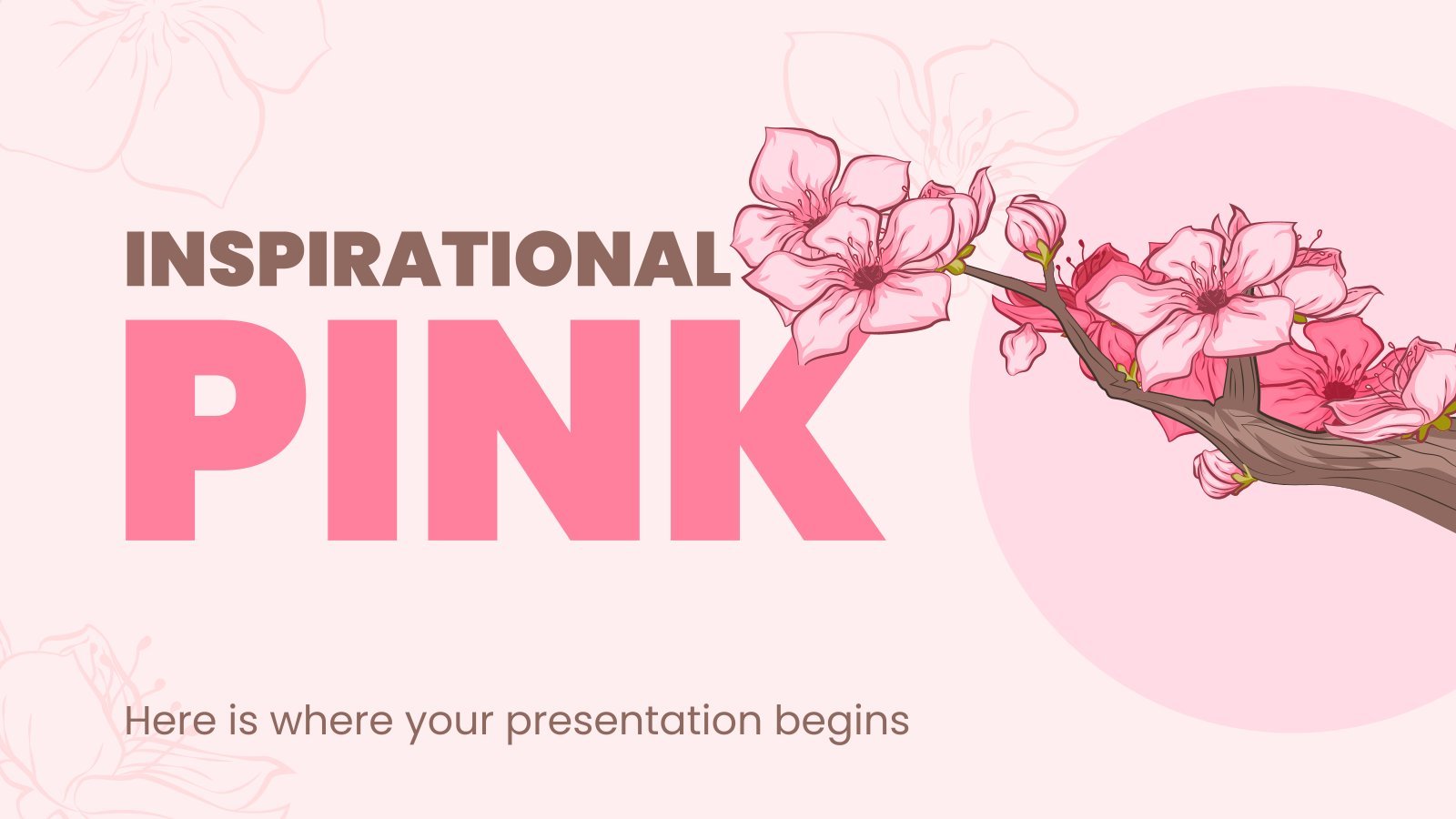
15 templates

pink flowers
255 templates

62 templates

11 templates
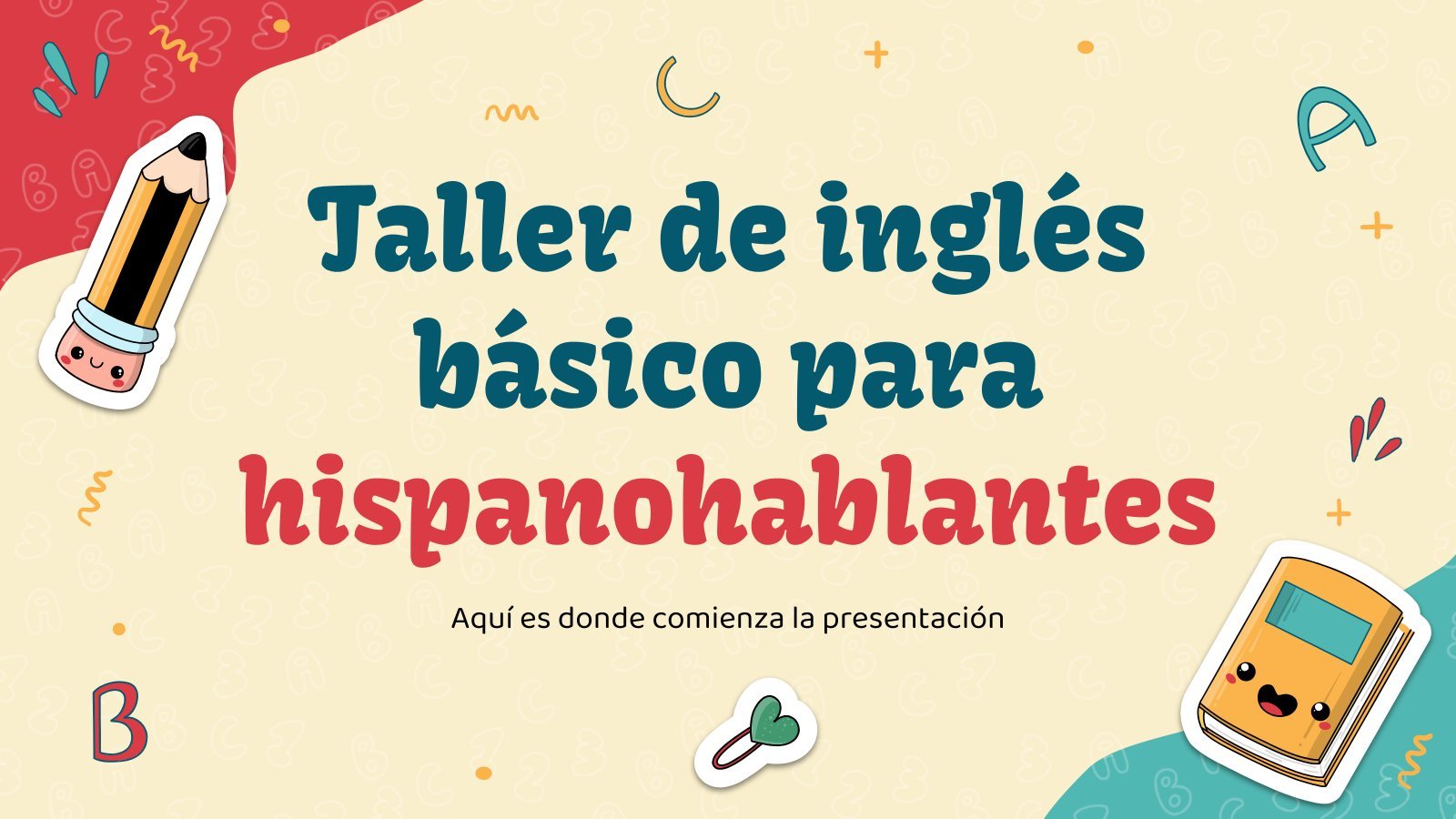
49 templates
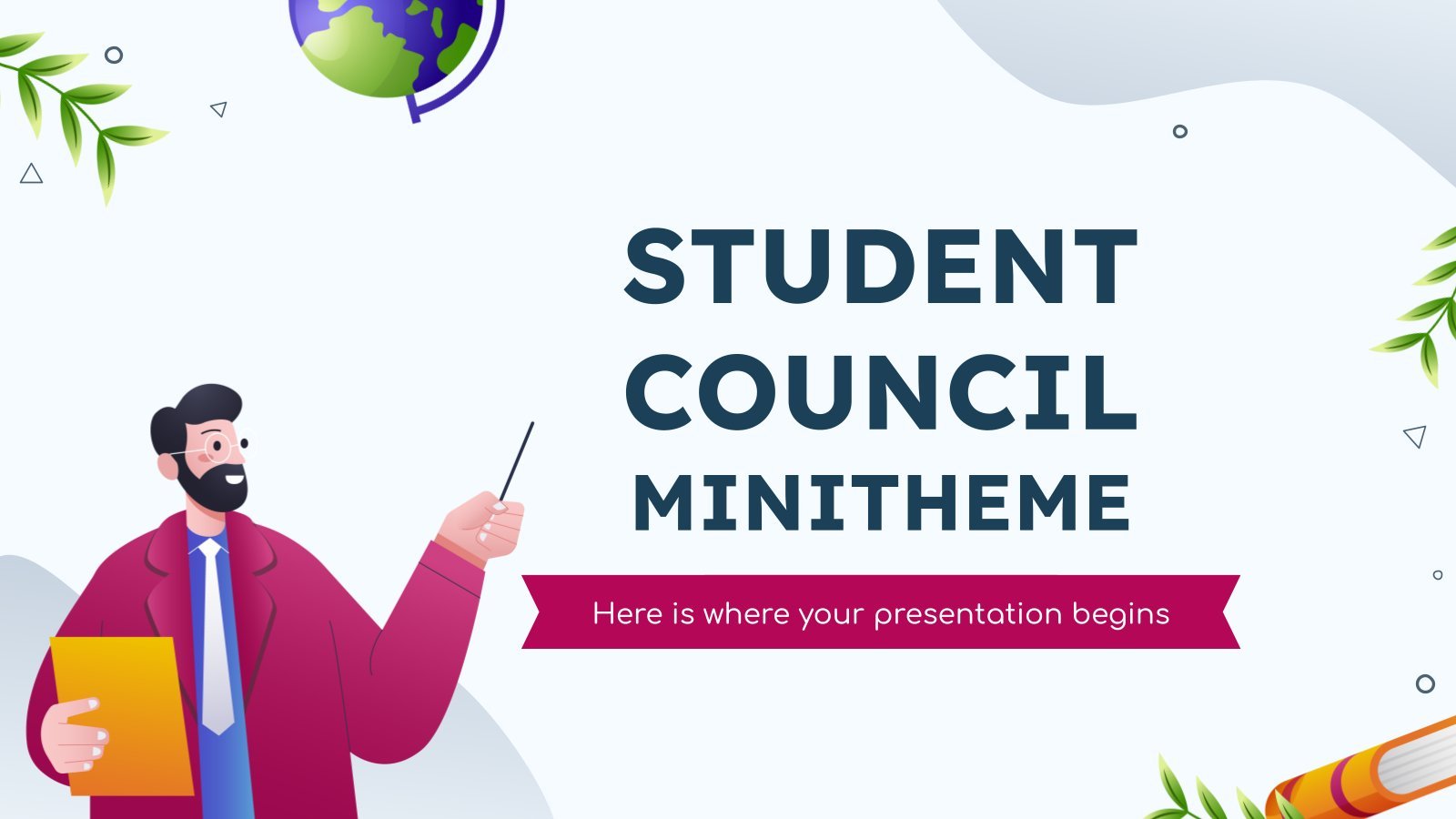
student council
Tech theme for career day, it seems that you like this template, tech theme for career day presentation, premium google slides theme, powerpoint template, and canva presentation template.
What do you want to be when you grow up? "A doctor!" "A teacher!" "A race driver!" "A computer!" Ummm... a computer engineer, you meant to say, right? Career Day provides a great chance to kids to decide what kind of studies they'll pursue when going to college. If you're in charge of talking about tech careers, use this template! It's completely safe to use, because... it has blue and purple tones! (Those who know about color theory will understand.) It also comes with wavy shapes, a couple of illustrations and very clear layouts.
Features of this template
- 100% editable and easy to modify
- 35 different slides to impress your audience
- Contains easy-to-edit graphics such as graphs, maps, tables, timelines and mockups
- Includes 500+ icons and Flaticon’s extension for customizing your slides
- Designed to be used in Google Slides, Canva, and Microsoft PowerPoint
- 16:9 widescreen format suitable for all types of screens
- Includes information about fonts, colors, and credits of the resources used
What are the benefits of having a Premium account?
What Premium plans do you have?
What can I do to have unlimited downloads?
Don’t want to attribute Slidesgo?
Gain access to over 29600 templates & presentations with premium from 1.67€/month.
Are you already Premium? Log in

Register for free and start downloading now
Related posts on our blog.

How to Add, Duplicate, Move, Delete or Hide Slides in Google Slides

How to Change Layouts in PowerPoint

How to Change the Slide Size in Google Slides
Related presentations.

Premium template
Unlock this template and gain unlimited access

.png)
A Guide to Public Speaking For Software Engineers
“Your technical skills are where they need to be, but you need to improve your communication.” - Your manager. This is one of the hardest pieces of feedback to hear as a software engineer. Why? Because you probably thought as a software engineer you can just speak code. But no. Only focusing on code can lead to a ceiling in your potential for growth and promotions.

Only focusing on coding skills causes you to reach a ceiling. Communication unlocks more potential. Inspired by Caleb Mellas’s post
⭐️ Main takeaways
While there’s a lot to communication, this post is focused on public speaking.
Specifically, we’ll cover:
- The most important areas to fix in your body language, wording, and tonality.
- How to create a presentation structure that keeps people listening to you.
The concepts here can be applied to:
- In-person & remote tech talks, demos, and technical direction presentations
- Leading meetings
⚠ Disclaimer: My advice is based on what has worked for me, but there are certainly exceptions. It will not apply to 100% of situations.
👤 Your body language
If you only take one thing from this section: Be open with your body language.
(1) Your eyes
There are 3 patterns you want to avoid:
- Staring at one person in the audience
- Staring at the slides
- Looking down
Instead, slowly rotate your head across the back of the audience and only look at your slides when you intentionally want the audience to look at the slides.
This gives you an aura of confidence and makes your audience feel like you are speaking directly to them, not your slides.
(2) Your posture
As software engineers, we have a tendency to hunch from sitting at the desk all day. To fix this you can try this before your presentation:
- Put your back to a wall, ensuring your shoulders and head are touching the wall.
- Stand up straight, look directly ahead, roll your shoulders back until it feels like you went too far, then let them naturally fall into place.
Having improved posture has these benefits:
- Your confidence will increase. Your nerves will decrease.
- The audience will be more engaged with you.
- Your voice will naturally project more.
(3) Your hands
One of the most difficult pieces to get down is what to do with your arms and hands. The good news is there’s only 1 thing you need to remember: Keep them open. Our most natural tendency due to nervousness is to close them off, interlock, rub them together, put them in our pockets, etc.
They are all closed body language behaviours.
From there, if you avoid closed body language, your only option is to do what you see other great presenters do:
- Calmly wave your arm in an open-palm position as you explain your point. Do what comes naturally though.
- Point with an open palm to something on the slide to focus on.
Still, there will be small things to improve, like ensuring you’re using both hands rather than just 1. But they’ll come with time. For now, just focus on being open.
Here’s a collage of Steve Jobs mid-presentation. In every image, his hands are never pointing down. They are always open.

Examples from Steve Jobs on what you can do with your hands during a talk. If you’re interested in more, check out this communication experts’ top body language mistakes to avoid .
🗣️ Your words
If you only take one thing from this section, it’s to project confidence . To this day, I still get nervous before presentations. I do at least 1 warm-up technique which helps ease my nerves and primes myself for speaking confidently though.
(1) Warm-up techniques for confidence
These are some things I do sometimes you might find helpful.
- Jumping jacks or push-ups. This helped me get my mind off of the nervousness, get blood pumping, and improve my focus.
- A power roar. Find a soundproof area and shout. Yes, I did do this in my old apartment before presentations and it worked for me 😂. It helped release all the tension that I felt in my stomach.
- Lowest effort: Expand your body!!! Before presentations, I’d find my body tightening up, my legs and arms crossing, and turning into a ball. Don’t let your body do this. Your body influences your mind. Expand your body, stretch, spread out, raise your arms above your head, anything. All of it will help you feel more relaxed.
- [Recommended by friends] Breathing exercises. I personally use the other methods more, but it’s all about finding what works for you

Pro tip: Another thing I’d do the day of the presentation is talk to more people. When you exercise without stretching, what happens? You strain yourself.
So if you have a presentation that day, “stretch” by talking to people. If you’ve spent most of the day talking to people, the presentation won’t feel so different. Compare that to if you spent the whole day without talking to anyone, doing a presentation in front of an audience will be a big 0 → 100 jump.
Avoid speaking too quickly, too slowly, or at the same pace permanently . Be dynamic. If you stick to just one pace, you become monotone, which leads to your audience opening Slack, opening their phone, or sleeping 😴.
Should you speak SLOW or FAST?
To do this right, put your emotions into your presentation. Get excited about the parts you genuinely are most excited about. Your audience will feed off that energy.
One other tip is if you notice yourself using fillers like “um” or “uh” a lot—which remove clarity and authority, you can slow down your pace a bit because it could mean your mind isn’t able to keep up with the rate you’re speaking at. You can also try to pause instead of using the filler.
It’s common for engineers to speak too quietly or mumble. A tip here is to think of top speakers you look up to and how they sound:
- Tony Robbins
- Michelle Obama
You don’t need to be as good as they are, but at least match their volume. You can even have a go-to speech of theirs you watch beforehand to prime yourself.
(4) Practice
This is well-known so I won’t focus on it too much, but practice . For big presentations, you can also record yourself or practice in front of a friend. It helps you with slight wording tweaks and most importantly, your confidence. Before your presentation, if you know you just need to repeat what you did while practicing yesterday, you’ll be much less nervous .
🎞️ Your content
I have a guide on this already , but I’ll provide a summary of the key points here.
(1) Add interactivity
One of the best ways to add interactivity is through “Question slides” or “Thought slides.” Make a slide that gets people to think about the topic before you teach them.
Let’s say your presentation is about how to be a good mentor.
A thought slide might say: “Think about the best mentor you ever had.” As it pops up, you say, “I want you to tell me if my advice today lines up with how they have mentored.”
A question slide might say: “What does good mentorship look like to you? What about bad mentorship?”
Getting them to think about this makes them interested in hearing what you have to say next and if it lines up with what they came up with.
When you’re presenting to a smaller audience (< 30 people), you can hear directly from the audience and increase the amount of times you do this.
Personal example: One way I added interactivity to a presentation was by asking everyone to close their eyes while I played an audio clip. It helped put them in the shoes of the people I wanted them to build more empathy for—customers who were blind and using a screen reader .
(2) Images > words
Go through every slide with words and ask if it can be replaced with an image. It’s true. Not every slide should be an image. In my experience, the best ones have been about 75% images and 25% words.
When you do use words on your slides, follow these rules:
- If it’s bulleted, try to use 3 or 5 bullets. Using 2 or 4 bullets doesn’t read as well.
- Consider making it a slide with just a single, big, centered sentence.
- Your bullets should be 1 line at most, 2 lines only sometimes, and never 3+ lines.
(3) How to structure the content
You might still be wondering how you put all of this together. There are a few popular frameworks you can follow as a software engineer:
- Problem-Agitate-Solution
Problem-Agitate-Solution is great for persuasion. You can use it to convince your team to adopt a new pattern or change a team process.
You start by concisely describing the problem, then “ agitate ” by talking about multiple pain points within that problem, and finally explain your solution .
Why it works: You jump straight into a problem people want to solve, hook their emotions by agitating, and then release the tension by providing a path forward.

An example of Problem-Agitate-Solution from my friend, Alex , from Taro
- Before-After-Bridge
Before-After-Bridge is great for stories after having made a change—like a tech talk, all-hands presentation, or advocating for a migration. It’s also a popular format in tech conference talks (“How we increased developer productivity by 2x at X”).
You describe the old state of the system ( before ), explain the current state of the system ( after ) and all the benefits, and then finally how you got there.
Why it works: Your audience understands why the system was what it was and the problems with it, they quickly understand and are impressed with the current or new state, but are curious how you got there. Afterward, you give them that payoff by explaining how you got from the old to the new.
- Topic-Why it matters-Information-Recap
This framework is best for informative presentations. You say your topic, tell the audience why it matters to them, tell them the information they need to know, then give a recap . See my LinkedIn explainer . I also used it for my presentation on accessibility and inclusivity at Gusto during our all-hands to 200+ people. Do this in combination with the interactive elements above and you’re set up for success.
Why it works: The audience is hooked by why it matters to them, the information is split into digestible sections, and they get a summary of takeaways to walk away with.
Body language : Keep it open
- Eyes: Rotate across the back of the audience. Don’t stare at slides
- Posture: Stand up straight, roll your shoulders back, head held high.
- Hands: Focus on openness and natural movements. Be aware of tics.
Speech : Focus on confidence
- Warm-up: Build confidence through a warm-up by doing light exercise, breathing techniques, a power roar, expanding your body, or talking to people.
- Rhythm: Avoid being too fast, too slow, or the same pace. Keep it dynamic.
- Tone: Think of famous speakers and how they vocalize. Try to mirror them.
Structure and content : Use a framework
- Interactivity: Use question and thought slides to get interaction.
- Images > words: Use visuals as much as possible. 75% visual and 25% word slide is a decent target to shoot for depending on the presentation.
- Structure: Use Problem-Agitate-Solution, Before-After-Bridge, or Topic-Why it matters-Information-Recap to present your content. There are others but these are my personal favorites and have worked well for me.
These techniques can take a while to master, and I certainly don’t have them 100% down either. My hope is that having this article to reference before your next presentation will get you one step closer to having a showstopper presentation.
This article was originally on Jordan Cutler’s newsletter, High Growth Engineer

Continue reading
How to have an effective 1-on-1 meeting, fully remote software engineer jobs, finding it & technology english-speaking jobs in germany , subscribe to devdigest.
Get a weekly, curated and easy to digest email with everything that matters in the developer world.
From developers. For developers.

Blog » Best Posts , General
9 Career Day Speech and Presentation Ideas (2024)
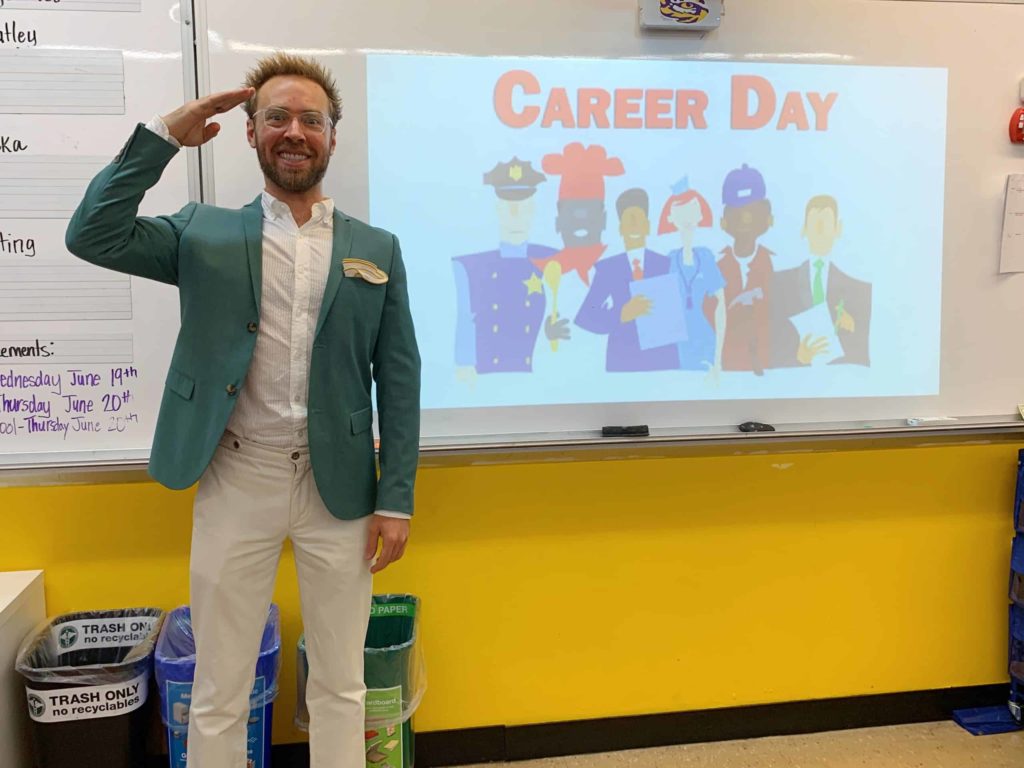
Last updated: May 28, 2024
I was a speaker at an elementary school career day. When I received the invite, I had no idea what to talk about.
What should I say? What questions should I ask?
How should I structure my speech? What were some presentation ideas?
Now I know. And I will tell you everything that I learned.
These are the best tips, tricks, and advice for speakers at an elementary school career day.
The speech and presentation ideas are collected from educators, colleagues, friends, and my own experience. You’ll read in this article about my learnings from hosting a career day, including:
- How to write your speech
- What things to bring (props)
- How to interact with the kids, and more.
Table of Contents
Introduction
My girlfriend invited me to speak to her 2nd grade class at their Career Day.
I immediately thought: How do I speak to children? What do elementary school kids want to hear at a Career Day?
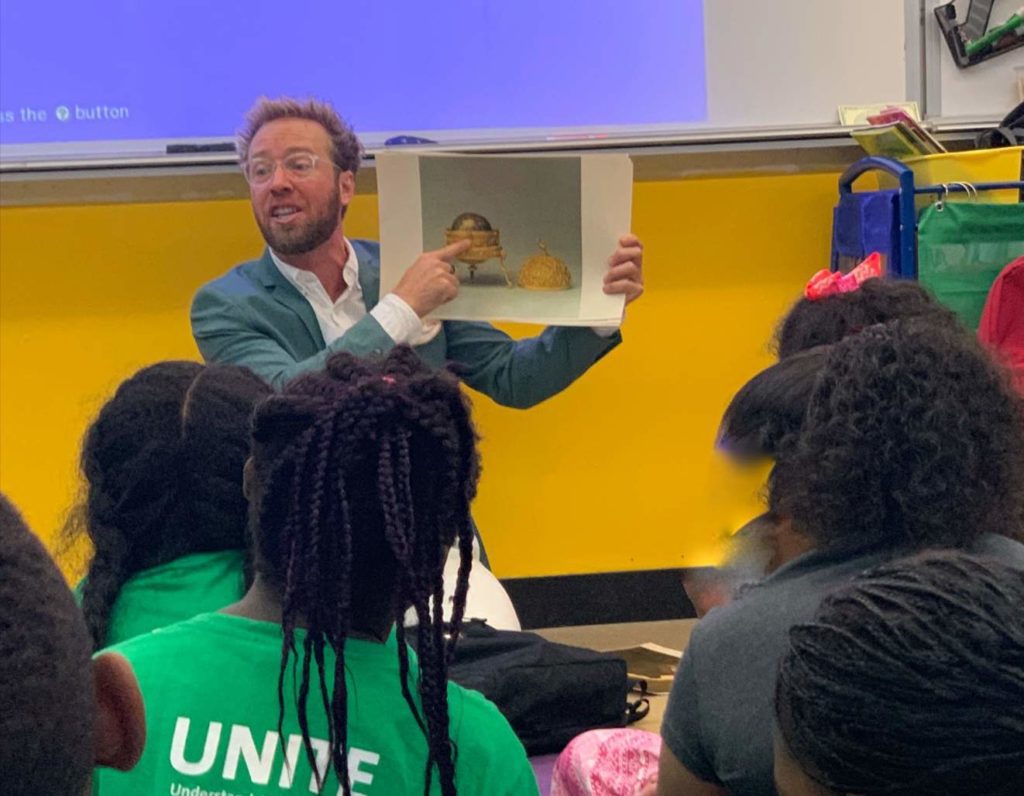
What I learned is that there are many differences in speaking to kids compared to speaking to adults .
You should be aware of the following:
- The kids were very participative. They gave many more questions and interactions and interruptions than I’ve ever had with an adult audience.
- If I was asking a question to the audience and getting answers from multiple people, I had to remind each student of the question. In a presentation to adults, if I ask a question, I can just point at different adults and quickly get multiple answers around the room. Today I found that I had to repeat the question each time I pointed at a new student in order to help them remember what I was specifically asking for.
- The kids all sat on the floor. To raise engagement levels, it was helpful for me to also sit on the floor or in a small chair.
Best Career Day Tips
Here are my best tips that you can use when writing your speech or presentation.
Write your speech with simple language
But don’t “talk down” to the kids in class, even at an elementary school.
Be prepared to answer questions.
The students will be very curious! They had a LOT of questions for me.
Have Good Stories Ready
You should also have good stories that you can tell about situations at work which describe your daily duties.
I received lots of tips and advice for my own talk from my network. Here at the best tips that I used:
- Sit At Their Level
Sit at their level. Either on a little chair or on the floor. Grownups can be scary! — Jason Hackett
- Bring Props
My friend Jarrod suggested that I bring some props. I brought large printed examples of some objects at the museum.
Props are a great way to keep the students engaged and allow them to look at and fiddle with something while they’re speaking with you. — Ecka
- Have High Energy / Be Excited
I think my girlfriend told me this: Get excited! Kids can feel the energy. Be animated and expressive with my body and face.
My friend Danielle said: “Be silly, yet firm.”
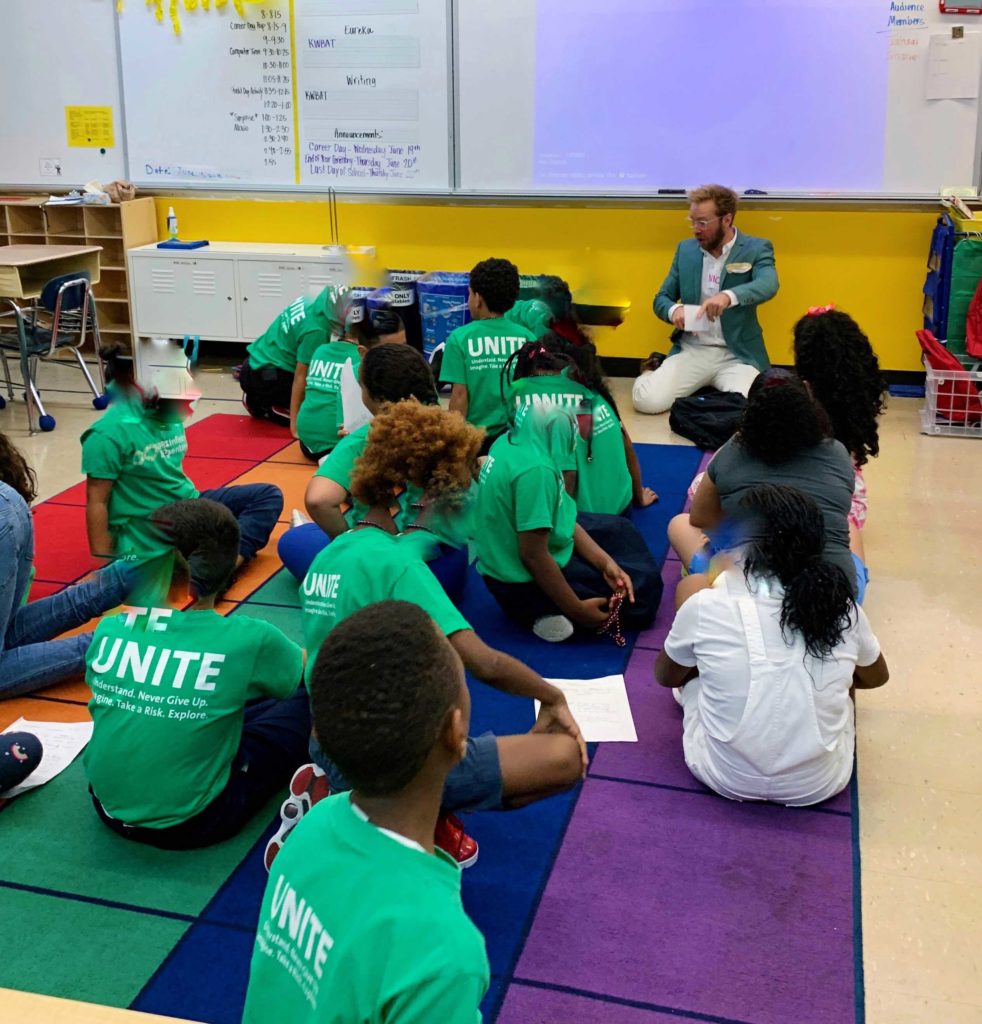
Ask the Students Questions
This was one of the best pieces of advice, and a lot of people suggested it.
Make sure there is a back and forth. Ask them questions, encourage them to ask questions. — Sarah Marsom
Ask tons of questions. I start by asking them if they have ever been on a field trip and then explain that I plan field trips for adults. — Theresa
Ask questions throughout!!! It will empower them to feel like they are part of the conversation and promote active listening throughout!!! — Camellia
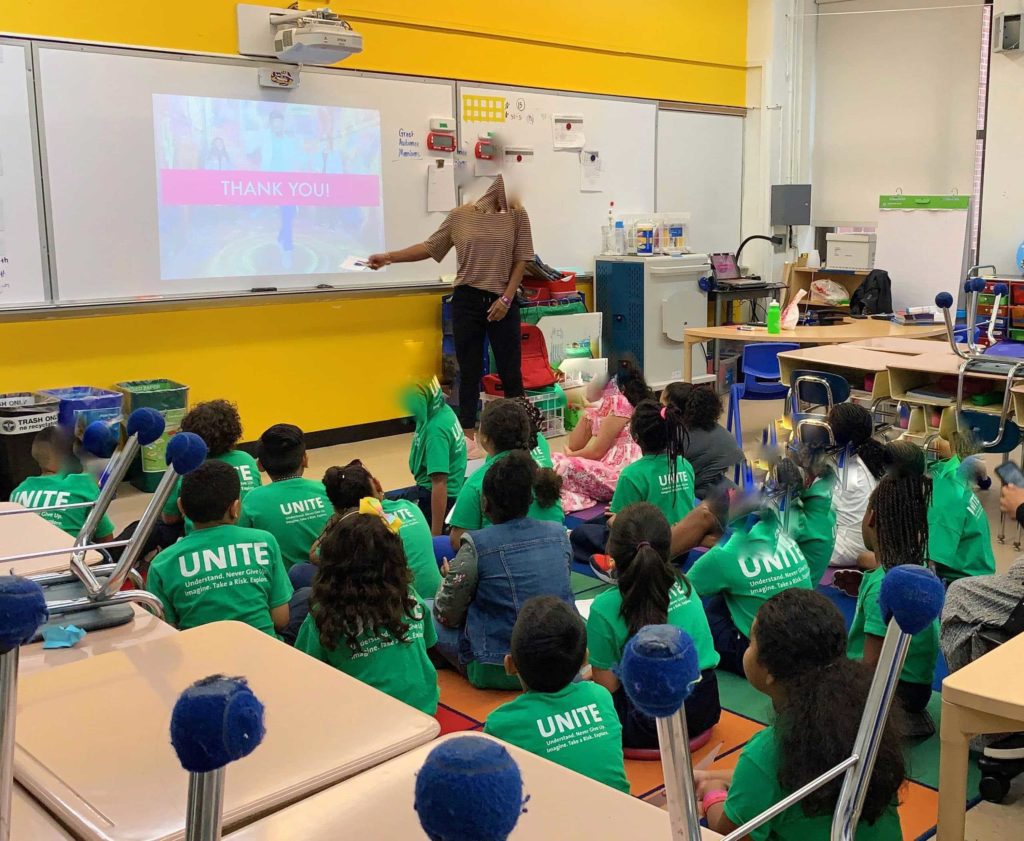
Questions That I Asked
- Who here has ever been to a museum? (raise your hand)
- Who can name a museum in New York City?
- What are some things that you find inside of a museum?
- Entrepreneurship: If you were going to sell something to your friends, what would you sell and why?
- Interactive Play
Think about a game or activity about your job. Allow the children to role play as if they are in a day of your career.
- Bring a Box of Snacks
Check with the teachers beforehand to get approval or dietary restrictions, but this can be a big win! Kids love snacks.
Tell a lot of stories about your job
Kids also love stories. Imagine you’re telling a bedtime story: how would you talk about your career? What is one of your favorite memories from work? What was it like when you first started your job?
Give the students examples
One of the things kids can relate to is toys. Bringing up one of the best toys like SLIME can surely make the whole class excited! Ask them what type of slimes would they like to put if they have a Slime Museum?
Give out handouts or prizes
Do you have any brochures from your job that you can pass around, ideally with photos?
Are there objects that you could pass around the room?
Bring those to your career day speech to make it more interactive.
Sample Career Day Speech
Here’s what you could say for a sample career day speech. It is based on my own presentation to a group of 2nd graders when I introduced myself as a museum tour guide.
Hello everyone! My name is Nick Gray and I am a museum tour guide. Who here has ever been to a museum? Raise your hand if you’ve ever been to a museum before. My job is to be a museum tour guide. That means I walk people around as a guide at an art museum. I tell them about the works of art. Who has ever seen a paining before? Raise your hand if you have ever seen a painting. Keep your hands up. I am going to call on someone now to ask you about what painting you saw, or what you remember. (ask a few students about any painting they have seen before, and what they liked about it) The times that I work for my job are 10AM to 6PM every day. Sometimes I even have to work on Saturday and Sundays, because those are very busy days at the museum. Do you think you would want to work on the weekend? My favorite parts about my job are meeting new people, and doing research about the new works of art. To do my job, you have to be very good at talking to people. Who here likes talking to people? Raise you hand if you like talking to people.
Presentation Feedback
In two of the classes that I spoke to, I asked the teachers to fill out these “Comment Cards” for my career day presentation. I love to get feedback whenever I speak.
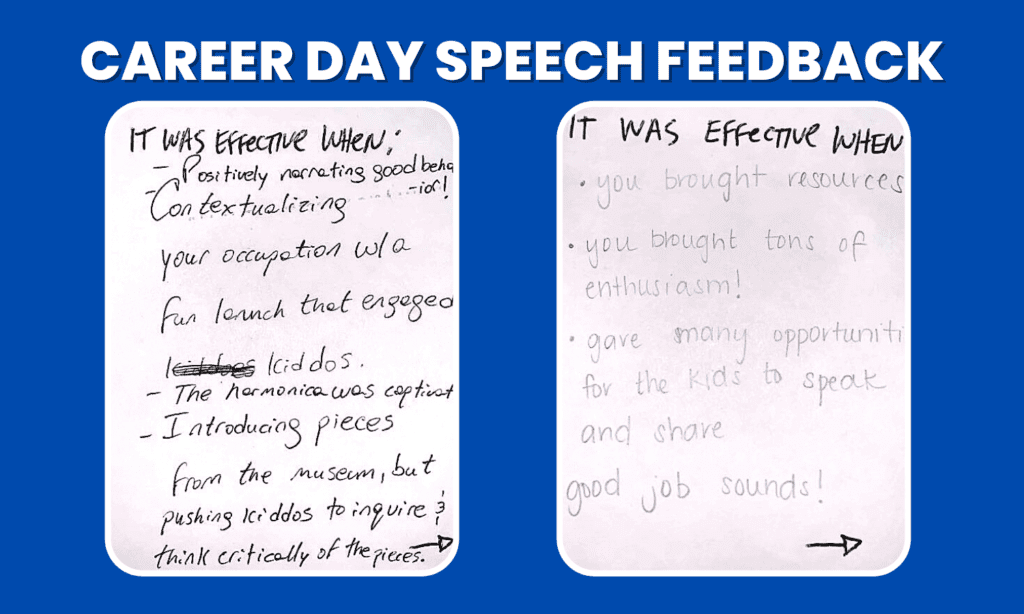
Class 1 — It was effective when:
- Positive narrating good behavior.
- Contextualizing your occupation with a fun launch that engaged kiddos.
- The harmonica was captivating!
- Introducing pieces from the museum, but pushing kiddos to inquir & think critically of the pieces.
Class 2 — It was effective when:
- You brought resources.
- You brought tons of enthusiasm!
- Gave many opportunities for the kids to speak and share.
- Good job sounds! (That was when I played my harmonica.)
Areas for improvement:
- Limiting students called on for each question in the interest of time (time conflicts that are not your fault, though). Nick’s note: I can certainly improve a lot here. There were just SO MANY kids wanting to participate. I didn’t want to make kids feel left out by not calling on them, so I think I tried to call on everyone. This wasted a lot of valuable time.
- I have lots more things that I could improve on! But the teachers were too nice not to critique me more.
Presenting at Career Day as an elementary school speaker was challenging, rewarding, and fun.
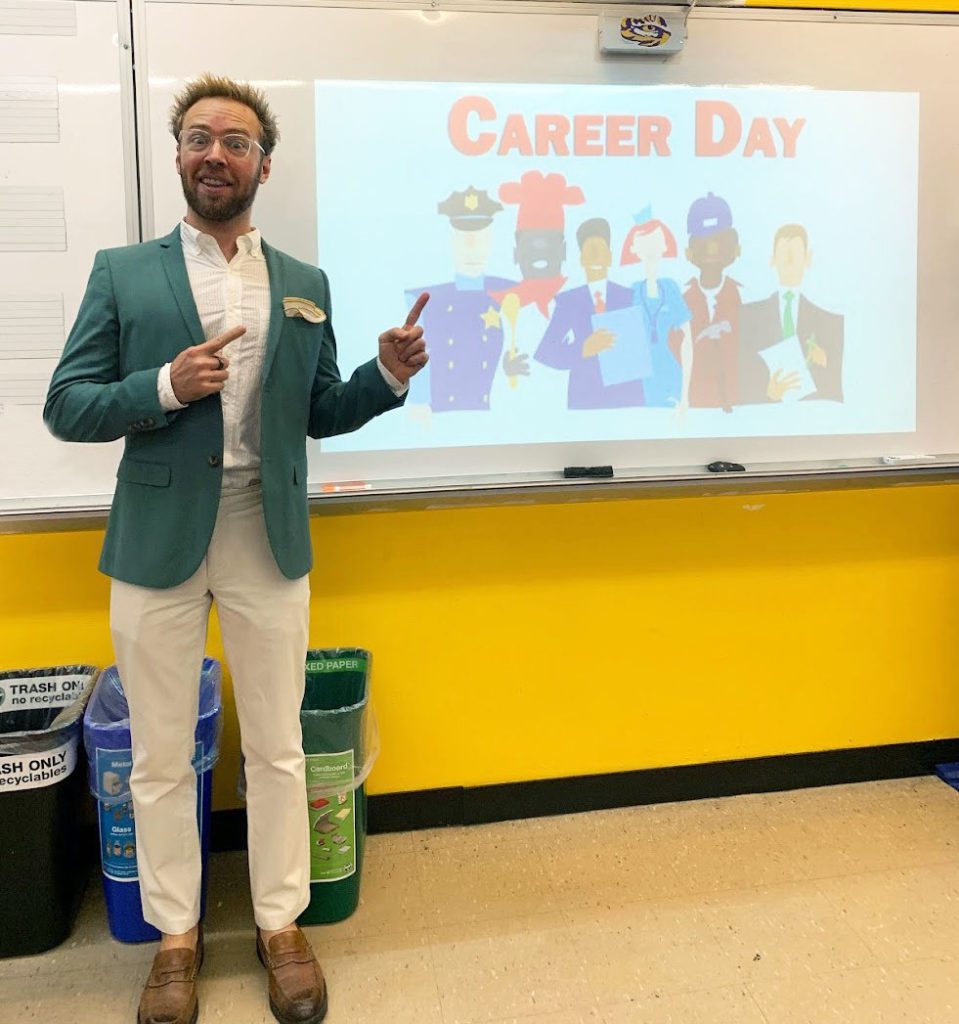
In summary, my best advice for career day speakers is:
- Ask Them Questions
- Tell A Lot Of Stories
- Give The Students Examples They Can Relate To
- Give Out Handouts Or Prizes
I have a newfound respect for teachers at all grade levels. To deal with so many active students for hours every day… wow. It was tiring after one hour and I can’t imagine a whole day of being “on” like that.
What advice do you have for someone who is presenting to elementary school kids on Career Day? Send me an email and let me know.
Thank you to KIPP Infinity in Harlem for inviting me to speak, Zach for organizing and managing the morning, Rachel for proof-reading this post and inviting me, and all my friends on my private Facebook who gave tips and advice.

Video Example of Teaching Style
This is the best video I found online showing classroom management by a teacher. It was helpful to watch and try to emulate some of these things when I presented to the students for Career Day.
What you should do next...
1. subscribe to my free friends newsletter ..
You'll get exclusive life hacks, business research, top tech gadgets, and see new productivity tips. See why 18,000 people say it is one of their favorite emails.
2. Get your 2-page Party Checklist from my book, The 2-Hour Cocktail Party
With over 19 things you can do right now to improve your next party. Plus an Executive Summary of the key lessons inside my book.
3. Read this list of my 39 Best Travel Items.
These are my battle-tested travel items. From electronics, batteries, and adapters to toiletries, organizers, my favorite backpack, and more.
4. Follow me on my social media.
Leave a comment cancel reply.
Save my name, email, and website in this browser for the next time I comment.

5 Ways to Make Career Day Presentation Interesting
by Tracy Mayaka
A Career Day is a highly structured Career Awareness activity in which working-class people from a variety of companies come together at a school or online to share information about their companies, their job description and the education skillset that is required for success in their career.
What are Career Days Designed to do?
Career days are designed to meet specific learning objectives, and to help students connect what they’re learning in school with the workplace.
They listen to speakers seeking information about the industry and the career options it provides.
They also learn about the education required for entry into the industry and participating business role in the local economy.
Career day presentations offer a unique opportunity to inspire students and provide insight into various professional paths.
How to Make a Memorable and Informative Presentation
To make your presentation not only informative but also engaging and memorable, you need to put together a whole lot of preparation, creativity, and enthusiasm.
This comprehensive guide will walk you through strategies to create an interesting career day presentation that leaves a lasting impact on students.
1. Understanding your Audience
The first step to having an engaging career day presentation is knowing your audience.
The age group and educational level of your audience will significantly influence the content and how you deliver your speech, for example;
- Primary School Students: Keep it simple, interactive, and fun. Young children get distracted easily and respond well to visuals and hands-on activities. Getting a variety of fun as well as educative games to keep the children engaged is a sure way to get career day fun and exciting for them.
- High School Students: Provide more detail about your profession, but still focus on interactive and engaging content. High school students are curious and can handle more complicated information, especially if it relates to their interests.
- University Students: Offer detailed insights into your career, including educational paths, daily responsibilities, and future opportunities. University students are thinking about their futures and are interested in practical advice and real-life experiences.

Start with a Hook
Begin your presentation with a captivating line to grab the audience’s attention.
This could be an interesting fact, a surprising statistic, or a personal story related to your career.
For instance, if you’re a scientist, you could start with a mind-blowing experiment or a fun fact about space.
Establish Relevance
After your hook, briefly explain why your career is important and relevant to the students’ lives.
This helps establish a connection and shows them the value of paying attention.
For instance, if you’re a doctor, you might say, “Understanding how the human body works and how to keep it healthy is something everyone can benefit from.”
2. Delivering Your Message
Once you know your audience, deliver your message to their level of understanding and interest.
Consider what might resonate with them while also keeping them engaged;
- For Younger Students: Focus on the exciting aspects of your job. If you’re a firefighter, talk about the big red trucks and the excitement of helping people. If you’re a scientist, share fascinating experiments and discoveries.
- For Older Students: Discuss the skills required for your profession, potential career paths, and the steps they can take to enter the field. Share your educational background and any relevant experiences that shaped your career.
Importance of Visuals
Visual aids are powerful tools for enhancing understanding and keeping the audience engaged.
Here are some types of visual aids you can use:
- Slides: Create a visually appealing slide deck with images and bullet points.
- Videos: Short videos can illustrate your work environment, a day in your life, or specific tasks you perform.
- Infographics: Use infographics to simplify complex information and present it in an easy-to-understand format. Infographics can illustrate career paths, industry statistics, or the impact of your work. This is especially necessary for students in the university.
The Power of Stories
Storytelling is a powerful way to convey information and make your presentation more memorable.
They illustrate key points and keep the audience engaged.
You could share your journey including the ups and downs you’ve faced and also talk a bit about what a typical day in your line of work looks like.
Importance of Interaction
Having an interactive session in between your speech will greatly enhance engagement and help reinforce key points.
They make the presentation more fun and allow students to actively participate.
Bringing Your Work to Life
Props and demonstrations can make your presentation more fun, engaging and provide a tangible connection to your work.
They help illustrate your points clearer and make your profession look more real to the students.
Consider the following ideas:
- Tools of the Trade: Bring along tools or equipment you use in your job. For example, if you’re a photographer, bring your camera and explain its features. If you’re a doctor, bring a stethoscope and demonstrate how it’s used.
- Live Demonstrations: Conduct live demonstrations to show your work in action. For example, if you’re a scientist, perform a simple experiment. If you’re a chef, demonstrate a simple cooking technique.
- Samples and Models: Bring samples or models related to your work. For example, if you’re an engineer, bring a model of a structure you’ve designed. If you’re an artist, bring samples of your artwork.

To make your presentation more relevant and memorable, connect your career to the students’ future goals and interests.
Discuss how the skills and knowledge they are acquiring in school relate to your profession.
Here are some tips:
- Highlight Relevant Subjects: Explain how subjects they are studying in school, such as math, science, or English, are used in your job. For example, if you’re an engineer, discuss how math and physics are essential in designing structures.
- Discuss Educational Pathways: Provide information about the educational paths that lead to your career. Discuss the degrees, certifications, or training programs required. Highlight any extracurricular activities or internships that can provide valuable experience.
- Showcase Career Opportunities: Discuss the various opportunities within your field. Explain the different roles and specializations available, and the potential for growth and advancement. This helps students see the long-term possibilities of pursuing a career in your profession.
Providing Practical Advice
Offer practical advice to help students achieve their career goals.
Share tips and strategies that have helped you succeed.
For example:
- Networking: Emphasize the importance of networking and building relationships in your industry. Share tips on how to connect with professionals and seek mentorship.
- Continuous Learning: Highlight the importance of continuous learning and staying updated with industry trends. Recommend resources such as books, websites, and courses that can help them stay informed.
- Soft Skills: Discuss the soft skills that are important in your profession, such as communication, teamwork, and problem-solving. Provide examples of how these skills are used in your daily work.
4. The Power of Passion
Your enthusiasm and passion for your work can be contagious when you speak with genuine excitement about your career, it captures the audience’s attention and inspires them.
Here are some ways to convey your enthusiasm:
- Express Your Passion: Talk about what you love most about your job and why you chose this career. Share your excitement about recent projects or achievements.
- Be Animated: Use expressive gestures and facial expressions to convey your enthusiasm. Vary your tone of voice to emphasize important points and keep the audience engaged.
- Share Success Stories: Highlight success stories and positive experiences from your career. These stories can demonstrate the impact of your work and inspire students to pursue similar paths.

Leave a Lasting Impression
Give the students something to remember your presentation by.
This could be a small souvenir, a brochure, or a list of resources for further exploration. Here are a few ideas for takeaways:
- Handouts: Provide handouts with key information, fun facts, and useful resources related to your career. This can reinforce your message and serve as a helpful reference.
- Souvenirs: If possible, give out small souvenirs related to your profession. For example, if you’re a writer, you could give out bookmarks or pens with your name and website.
- Resource Lists: Provide a list of books, websites, and organizations that can help students learn more about your field. Include any online courses or workshops that might be beneficial as well.
For kindergarten students, gifts like glow bracelets are a fun and sure way to make them remember you for quite some time.
- Encouraging a Follow-Up
Encourage students to do follow up if they have more questions or are interested in learning more about your career.
You might be surprised by just how many are interested. Let us look at a couple of ways in which this can be achieved:
- Contact Information: Share your contact information, such as an email address or social media handles, where students can reach you with questions or advice.
- Offer Mentorship: If possible, offer to mentor interested students. This could involve answering their questions, providing guidance on educational paths, or helping them find internship opportunities in industries that align with their career paths.

- Follow-Up Activities: Suggest follow-up activities or projects that students can do to explore your field further. For example, if you’re an environmental scientist, you might suggest a school project on local ecosystems.
Conclusion
Making a career day presentation interesting requires a lot of preparation, creativity, and enthusiasm.
By understanding your audience, crafting an engaging introduction, utilizing visual aids, sharing personal stories, incorporating interactive elements, bringing props and demonstrations, relating your career to students’ future goals, showing enthusiasm, and providing takeaways, you can create a memorable and inspiring presentation.
Keep in mind though, that the goal is to not only inform but to ignite curiosity and a passion for your profession. With these strategies, you can leave a lasting impression and help students envision a future in your field.
References
Rachel Kolar (2018). Lessons from Elementary Schools Career Day, 2017 Edition. Retrieved from rachelkolar.com.
Tim Hindle (1998).Making Presentations.
Lisette Edgar. Speech Sprouts. Retrieved from speechsprouts.com.
Nick Gray. (2024). 9 Career Day Speech and Presentation Ideas. Retrieved from nickgray.net.
Carmine Gallo. (2014). Talk like Ted: 9 Public Speaking Secrets of the World’s Top Minds.
Submit a Comment Cancel reply
Your email address will not be published. Required fields are marked *
Save my name, email, and website in this browser for the next time I comment.
Submit Comment
What to Expect: a Day in the Life of a Software Engineer

Explore the daily routine and responsibilities of a software engineer. Get a glimpse into the challenges and rewards of this dynamic profession.
Software engineering is already a popular profession, and it’s only expected to grow. According to the United States Bureau of Labor Statistics , the profession is predicted to grow 25% by 2031.
But what do software engineers do? What does a day in the life of a software engineer look like?
We spoke with Caleb Braaten, the Principal Technical Mentor here at App Academy, to dig into the details.
Flexibility in Working Hours
Some might expect the working hours for a software engineer in the fast-moving tech world to be quite rigid, but that’s not always the case. While traditional tech firms may function around the 9-to-5 model, there are ever-increasing opportunities for remote work or more flexible work schedules.
According to an article from Turing , 86% of software engineers have been working remotely, especially since the pandemic. The same article found that 71% prefer a mix of home and office work. Many software engineers probably enjoy some of the benefits of remote work, which can include:
- Avoiding a commute
- Spending more time with family
- Having a greater sense of work/life balance
There are also, of course, some challenges that come with working remotely:
- Isolation from colleagues
- Potential distractions at home
In addition to remote working options, some companies also work asynchronously, meaning employees may have the opportunity to work whenever they want, inside or outside of “regular business hours.” This can work well for those who want more control over their working hours, or for those who may have colleagues working in different locations around the world.
A trend toward more flexible working hours was already ticking up in the tech world, and it was certainly accelerated by the pandemic.
Regardless of the working hours you keep, it’s important to note that the software engineer career path is often not a typical 9-to-5 job. Projects and deadlines may have more influence on your work hours than when your company is “open.”
Working with Others
Software engineering may seem like a solo endeavor, but teamwork is a common part of the job. Software engineering teams often utilize pair programming, where two or more people work together on a project or a piece of code. It’s an effective way to work, and studies show that it can lead to faster production times and improved code quality.
Here at App Academy, we incorporate pair programming into our curriculum. Even if you find a job at a company after graduation that doesn’t use pair programming, you’ll have the experience and the skill in your back pocket. If you ever do end up in a professional setting that relies on teamwork, you’ll be able to lean on experience you already have.
Overall, software engineering is a collaborative industry. Whether you’re working with a team to complete a project or simply need some help or outside input on a solo project, you’ll need strong communication and interpersonal skills .
Some Unconventional Paths to Software Engineering
One thing that becomes evident when looking at the lives of software engineers is that there are many different paths to reaching this career. If you start working in the industry, you might meet people with a number of different backgrounds and experiences.
Some software engineers have a college degree , and some don’t. Whether you have a degree or not, it’s still possible to become a software engineer through a variety of other options.
These programs, like the ones here at App Academy, teach you the skills you need to be a software engineer, but in a much shorter time than pursuing a college degree. They can be a good choice if you’re looking to pivot your career in a smaller time window.
Self-Learning
There are more resources available than ever before to support self-teaching endeavors. If you’re disciplined and motivated, you can teach yourself the skills you need to become a software engineer.
This path may take longer than attending college classes or a coding bootcamp, but it comes without tuition fees.
An Open-Source Community
Along the lines of teaching yourself, aspiring software engineers can lean on open-course communities for various coding languages. There’s a growing trend of people joining these communities to learn new skills. This usually involves contributing to projects and working with others in the community.
It’s common for people to make a transition from working in these communities to software engineering as these new skills can be applied in many different areas. With the growth in the software engineering job market , now is a great time to consider a career switch, regardless of your path.
A Solid Path of Career Progression and Growth
A day in the life of a software engineer is important, but it doesn’t necessarily paint the whole picture: each day contributes to an overall career and professional growth.
As a software engineer, you’ll have the opportunity to advance your career and earn more money as you gain experience. While each individual’s path might vary, there are some common stages that are helpful frameworks for looking at the software engineer career path.
Junior Developers
Junior developers tend to work on projects and tasks that have a more narrow scope. They usually work under the supervision of more experienced engineers. They solidify their basic coding skills while working on real-world projects.
Mid-Level Developers
Software engineers at this stage of their careers might be what comes to mind when we try to picture someone working in this field. Mid-level developers are responsible for working on larger projects, and they sometimes lead a team of junior developers. They generally continue to contribute code, but they’re more involved in giving feedback, identifying priorities, and determining project timelines.
Senior Developers
Mid-level developers can progress to become senior developers. In this capacity, they are responsible for leading a team of developers, and they play a key role in decision making. They set priorities, often work with roles across departments, and they tend to spend less time creating the code base itself and focus more on supporting its success.
The company you find yourself at will affect these role distinctions as well. At a startup, for example, roles may be broader or have more responsibilities, and an individual may progress much faster. At a larger, established company, these roles will be more narrow, streamlined, and specialized.
Growth Might Seem Untraditional
Considering the high average salaries for software engineers across the country, it’s no wonder that many are flocking to the profession. The job market is strong, and there are plenty of opportunities for career growth, especially with new technologies and approaches being developed all the time.
Growth in this career, however, might sometimes seem a bit untraditional. Many developers often look for new, more senior roles outside of their current companies to drive their career progression.
There are a few reasons for this trend:
- It’s often a faster way to move up through the ranks
- You put yourself in competition with top talent, which can land you a higher salary or more benefits
- Software engineers and their skills are in high demand, so many companies are looking for new talent
- The field itself is fast-paced
There’s no right or wrong way to drive your career as a software engineer. Whether you stay at your company for a number of years or move between several, the career itself is inherently set up for growth and development as you master new skills and put them to work.
As you continuously learn and stay up-to-date with the latest technologies, you give yourself the tools to level up your career every step of the way.
Start Your Life as a Software Engineer with App Academy
Whether the salary attracts you, you’re bored with the traditional college path, or you want to jumpstart your new career as soon as possible, an App Academy bootcamp can help.
Our immersive programs will teach you everything you need to know to become a software engineer from full-stack development to resume and interview tips. If you’re looking to change your life, get in touch with us today to learn more about admissions.
CONTACT AN ADMISSION SPECIALIST
Don’t miss a beat with The Cohort!
We’ll send you the latest Tech industry news, SWE career tips and student stories each month.
Interested in an App Academy Bootcamp?
One of our coding bootcamps, prep course or free online coding platform (App Academy Open) could be the next step you need to make a lasting career change!
You Might Also Like
If you enjoyed this article, we encourage you to read some of our other top posts.

Step-by-Step Guide to Starting a Tech Career from Scratch

The Challenges and Advantages of Starting a Tech Career Transition Older in Life

New Enhancements to App Academy’s Programs: August 2024


Cool Careers In Technology
Inspire your students to pursue a career in S.T.E.A.M. (Science, Technology, Engineering, Art, & Mathematics) with our highly entertaining presentation

Presentation: 30 to 45 minutes
2-hour maximum visit per school site
Presentation
Large groups in assembly style format are preferred, but presentations can also be performed for small groups in classrooms
NEW! Virtual Presentations
Can be held virtually through Zoom
Technical Requirement
Screen & Projector will need to be provided by the school
Access to electrical outlet
If in assembly style, microphone and sound system will need to be provided
Our presentations include information on:
- Computer Programming
- Game Development
- Self-Driving Vehicles
- Artificial Intelligence and much more

Kids That Code FAQ's
Frequently asked questions, what is the presentation about, how long is the presentation, what days and times can you present, how long can you stay to present, what is the appropriate age for the presentation, what type of equipment should be provided for the presenter, do you have a new presentation every year, anything else we should know.

Do you have any question?
Contact us for more information at 909-475-7726 or send an email
© 2024 Kids That Code. All rights reserved
Privacy Policy
Privacy Overview
Contact info.
- Address P.O. Box 9931, San Bernardino, CA 92427
- Email [email protected]
- Phone 909-475-7726
Connect With Us
Username or Email Address
Remember Me

Registration confirmation will be emailed to you.
Career Insights | A Day in the Life of A Software Engineer
by English Plus | May 22, 2023 | Career Insights

Introduction
Audio episode, interactive transcript, text transcript.
Welcome to the first episode of our brand-new series, ‘Career Insights’. In this episode, your host Danny dives deep into the life of a Software Engineer. We kick things off with an overview of the typical day for a software engineer, exploring their morning routines, key tasks, and responsibilities. From coding to collaborating with other team members and quality assurance testing, we leave no stone unturned.
As the episode unfolds, we explore the work environment of a software engineer, discussing their physical workspace, the tools they use, and their work culture. We also discuss the long-term career outlook for a software engineer, touching on market trends, career progression paths, and professional development opportunities.
Our guest, Alex Johnson, a seasoned software engineer, joins us to provide an insider’s perspective on the challenges and rewards of the profession, as well as tips and advice for aspiring software engineers. This episode is a must-listen for anyone interested in understanding what a career as a software engineer entails, whether you’re considering a career shift, starting your professional journey, or simply curious. Tune in to ‘Career Insights’ and step into the shoes of a software engineer!
(Intro Music)
Hello, welcome, and thank you for joining us here on English Plus. I’m your host, Danny, and I’m excited to embark on a brand-new series with you today: Career Insights.
“This series is all about exploring different professions, giving you a glimpse into the day-to-day life of people in various roles, and hopefully, helping you appreciate their work a bit more. We live in a diverse world filled with fascinating people doing incredible things, and through this series, we aim to shine a spotlight on them and their stories.”
“Why is this important, you might ask? Well, firstly, by understanding the roles that others play in society, we can foster a deeper sense of empathy and appreciation for their work. We’ve all had moments where we’ve wondered, ‘What does a software engineer, or a teacher, or a chef do in a day?’ This series will answer that.”
“Secondly, if you’re at a crossroads in your career, considering a shift, or even starting your professional journey, these insights could guide your decision-making. Through the firsthand experiences of our guests, you may find a career path that sparks your interest.”
“Lastly, we’re all naturally curious beings. Whether or not you’re planning a career move, learning about different professions is simply interesting and expands our understanding of the world. Who knows, you might discover a newfound respect for a profession or gain a perspective you’ve never considered before!”
“So, you might be wondering, who exactly is a software engineer? Well, in simple terms, a software engineer is a professional who applies the principles of software engineering to the design, development, maintenance, testing, and evaluation of software that make our digital world spin around.”
“Imagine this: every app on your phone, every software on your computer, every program that makes life easier – from sending emails to editing photos, from booking your flights to controlling a Mars Rover, you name it – there’s a software engineer or likely a team of them, tirelessly working behind the scenes.”
“Software engineers are the unsung heroes of our modern world. They’re the architects and builders of the digital world, constantly solving problems, squashing bugs, and creating the magical digital experiences we often take for granted.”
“So, buckle up, dear listeners, as we embark on this enlightening journey to understand what makes software engineers tick, how their day goes by, and what it takes to stand in their shoes, even if just for a day!”
(Music Transition)
Stay tuned for the next part, where we dive into the daily routine of a software engineer, and don’t worry, it’s not all about crunching code!
“Okay, welcome back to the show! So, you’re curious about what a typical day looks like for a software engineer, right? Well, here’s a hint: it doesn’t start with them waking up in a bed of circuit boards and drinking a morning brew of hot, freshly brewed Java… code, that is.”
“I’m kidding, of course. They drink regular coffee… well, as regular as a triple espresso shot can be. We all know that’s the secret sauce to most programming miracles.”
“But let’s kick things off for real. So, the start of the day for our digital maestro often begins with checking emails. This may sound pretty normal to most of us, but here’s the catch: for a software engineer, it’s not just about replying to a ‘Hello, how are you?’ email. It could be anything from updates on ongoing projects, bug reports, messages from other team members, and sometimes, a sweet appreciation email from a satisfied client or end-user.”
“Once they’re all caught up on their inbox, it’s time for the daily stand-up meeting. This is not a comedy gig, as the name might suggest. Nope, it’s a brief meeting where the team gets together – in person or virtually – to discuss the plan for the day.”
“In this meeting, each member typically answers three main questions: What did I do yesterday? What will I do today? And, are there any obstacles in my way? It’s a perfect way to set the day’s agenda, align everyone’s tasks, and clear any roadblocks ahead.”
“So, by the time our software engineer finishes this stand-up meeting, they’re all set for the day’s journey, fully armed with tasks to conquer and problems to solve.
Stick around, folks, as we delve into the heart of a software engineer’s day: the key tasks and responsibilities that keep them on their toes, or more aptly, on their keys!”
“Welcome back! If you thought a software engineer’s life is all about binge-coding and energy drinks, well… you’re partially right. But there’s so much more to it! After the morning routine, they dive headfirst into the meat and potatoes of their day – the key tasks and responsibilities. So, what does this involve? Let’s explore.”
“First up: Coding and debugging. This is the heart of a software engineer’s job. They spend a considerable amount of time writing code to create new software applications or improve existing ones. It’s like crafting a masterpiece, but instead of paints or clay, they use programming languages like Python, JavaScript, or Ruby. And like any good craftsperson, they don’t just create – they also fix. Bugs in the code can cause glitches or crashes, and our software engineers are the detectives that find and fix these pesky intruders.”
“But software engineers don’t live on an island of code. They’re part of a larger team, often working closely with project managers, designers, and other developers. Collaboration is key here. They need to ensure that the software they’re developing aligns with the project’s objectives, fits the user’s needs, and seamlessly integrates with the overall design. It’s like being part of a tech orchestra, with each player contributing to the symphony of successful software.”
“Last but definitely not least, software engineers spend time reviewing code and doing Quality Assurance testing. This is the stage where they meticulously go through the code to make sure it’s clean, efficient, and error-free. Imagine being a novelist, and this would be the editing and proofreading stage. Then comes QA testing, where they test the software in all possible ways to ensure it works as expected. If coding is the heart of the job, then testing is the pulse-check. It ensures the software is alive, kicking, and ready to serve users.”
“And there you have it – a snapshot of the core tasks that fill a software engineer’s day. Intriguing, isn’t it? Now, don’t dash off just yet. There’s more to come after the break.”
Stay tuned to find out how the day progresses in the life of a software engineer. We’ll explore the afternoon and evening routines next!
“And we’re back to continue our journey through a day in the life of a software engineer. So, we’ve delved into the morning routine and core tasks. Now, let’s fast-forward to the afternoon. And no, it’s not just lunch and a siesta, although I’m sure our hardworking tech wizards wouldn’t say no to that!”
“Afternoons are often dedicated to some of the heavier lifting tasks such as software design and implementation. Imagine this: if coding is like laying bricks, then software design is like drafting the blueprint. It’s all about planning how the software should function, which technologies to use, and how the different components will interact. It’s as if they’re digital architects, designing skyscrapers that live in the cloud.”
“And just like architects, software engineers don’t build alone. They often engage in brainstorming sessions with other team members. These sessions are like idea-thunderstorms, where everyone brings their creative and technical prowess to the table. It’s all about problem-solving, generating new ideas, and finding innovative solutions. And trust me, when you’ve got a room or a Zoom call full of bright minds, the sky’s the limit!”
“These afternoon tasks can sometimes stretch into the evening, especially when our tech heroes are in the zone, sipping their 4th coffee of the day, and cracking the code for a complex problem. But, contrary to the stereotype, it’s not all about staring at screens and crunching code. Collaboration, creativity, and lots of caffeine are all part of the daily routine!”
Don’t go away! We’ll be right back after this break to wrap up a day in the life of a software engineer, and trust me, you don’t want to miss it!
“Welcome back, dear listeners, to the twilight zone of a software engineer’s day. No, not the movies or the books. I’m talking about the evening routine, the final lap in the daily race against bugs and deadlines.”
“So, how does a software engineer wrap up their day? Well, it’s not just powering off their computers and calling it a day. Although I’m sure they’d love that, there’s a bit more to it.”
“First off, they need to update their progress and track their tasks. This is crucial for two reasons. One, it helps them keep track of what they’ve achieved during the day, which is a great morale booster. And two, it keeps the rest of the team informed. After all, in the orchestra of software development, each musician needs to know what the others are doing.”
“And before they call it a day, they do some planning for the next day. This could involve setting their tasks, jotting down new ideas, or even preparing for a presentation. You know the saying, ‘Failing to plan is planning to fail.’ Well, software engineers take that to heart. And, between you and me, I think they just enjoy having another excuse to use their colorful sticky notes and elaborate digital task trackers!”
“And that, folks, is how a software engineer wraps up their day – not with a grand exit, but with an organized, forward-thinking routine. Trust me, it’s not as mundane as it sounds. Remember, in the world of software engineering, even the routine tasks have a hint of magic and a whole lot of caffeine!”
Stay tuned for the next segment as we step out from the daily routine and take a bird’s-eye view of the software engineer’s work environment. This is going to be interesting!
“Welcome back to English Plus, where we’re journeying through the life of a software engineer. So far, we’ve explored their daily routine, but now let’s switch gears a little. Let’s take a step back and examine the bigger picture – the work environment.”
“First up, the physical workspace. Now, here’s the fun part. The workspace of a software engineer isn’t always just a cubicle in a stuffy office building. In fact, it can be anywhere – a bustling tech company, a cozy home office, a trendy co-working space, or even a beachfront cafe with a killer sea view. Yes, folks, thanks to the magic of the internet, software engineering is a profession that can be as on-site, remote, or hybrid as you want it to be!”
“Speaking of the internet, let’s talk about collaborative tools and software. Software engineers work with a bunch of these on a daily basis, and no, they’re not just for making their screens look like the cockpit of a spaceship! They use tools like Github for version control, Slack for communication, Trello for project management, and so on. These tools are like their digital workbench, where they hammer out code, polish ideas, and screw in solutions.”
“And finally, we can’t talk about the work environment without mentioning work culture and team dynamics. While the stereotype often paints software engineers as solitary tech wizards, the reality is quite different. They’re usually part of a diverse team, each member bringing unique skills to the table. The work culture encourages creativity, continuous learning, and collaboration. And despite the occasional long hours and tight deadlines, there’s often a sense of camaraderie, mutual respect, and a shared love for creating something amazing from lines of code.”
“So, there you have it – the work environment of a software engineer. It’s flexible, dynamic, and fueled by innovation. How cool is that?!”
Stick around, as up next, we’re going to shed light on the long-term career outlook for a software engineer. Trust me, the future is bright and full of codes!
“And we’re back! Now, after hearing about the day-to-day life of a software engineer, you might be wondering, what does the future hold for this profession? Well, I’m glad you asked, because that’s exactly what we’re going to discuss now.”
“Firstly, let’s talk about the current market demand and future trends. To put it simply, the demand for software engineers is… HUGE! With our lives getting more digital by the day and industries all over the globe embracing technology, the need for skilled software engineers is only set to grow. And looking ahead, trends like artificial intelligence , machine learning, and blockchain are paving the way for even more exciting opportunities in this field.
“So, what does the career progression path look like for a software engineer? Well, it typically starts as a Junior Software Engineer, where you’re learning the ropes and honing your skills. From there, you can progress to a Senior Software Engineer, where you’re not just coding but also making key decisions about the software’s design and architecture. Further up, you could become a Technical Lead or an Engineering Manager, overseeing projects and teams. So, as you can see, the path can lead you to some pretty high places, and not just in terms of the floor number in a tech skyscraper!”
“Now, let’s talk about continuing education and professional development. The world of software engineering is always evolving, and to keep pace, it’s important to keep learning. This could involve anything from attending workshops, taking online courses, earning certifications, or even getting an advanced degree. It’s like being a tech knight, always sharpening your sword to face the dragons of bugs and outdated technologies.”
“And what if you fancy a change? Well, the skills you gain as a software engineer can open doors to other roles in the tech industry. You could transition into data science, project management, cybersecurity, or even start your own tech venture. So, the possibilities are nearly endless!”
“In a nutshell, the long-term career outlook for a software engineer is pretty exciting. There’s growth, there’s variety, there’s a chance to make a real impact, and yes, there are plenty of late-night pizza parties too!”
“Welcome back, folks, to English Plus. We’ve been journeying through the life of a software engineer, and what a journey it’s been! Now, let’s talk about the challenges and rewards in this profession. Because, let’s face it, it’s not all rainbows and perfectly written code. There are thorns in this rose bush, but oh boy, the roses sure smell sweet!”
“Let’s start with the challenges. The most obvious one is staying up to date with the ever-evolving tech landscape. It’s like riding a super-fast train where the tracks are being laid right in front of you. It can be thrilling, but it can also be quite exhausting. There are also the occasional long hours, tight deadlines, and the pressure of troubleshooting tricky bugs. It’s not always an easy ride, folks.”
“But oh, the rewards! First up, there’s the sheer joy of creating something from nothing – a piece of software that can make lives easier, businesses run smoother, or just provide some fun. Then there’s the thrill of solving complex problems, like a digital Sherlock Holmes. And let’s not forget the satisfaction of learning new skills and riding the wave of cutting-edge technology. The challenges may be steep, but the view from the top is worth it!”
“Now, with all the work that goes into being a software engineer, how does one manage a healthy work-life balance? Well, the first piece of advice is to set boundaries and stick to them. That might mean keeping certain hours strictly for work and others for relaxation and personal time. It’s also important to take regular breaks during the workday. Yes, that’s right, stepping away from the screen is allowed, even recommended! Lastly, don’t forget to take care of your physical health. Regular exercise, a balanced diet, and a good night’s sleep can do wonders for your productivity and wellbeing.”
“Welcome back to English Plus! So, we’ve talked about the day-to-day life of a software engineer, the work environment, and the challenges and rewards. Now, you might be thinking, ‘Sounds great, but how do I actually become a software engineer?’ Don’t you worry, we’ve got that covered too!”
“First off, let’s talk about the necessary skills and qualifications. At a basic level, you’ll need a strong grasp of computer science fundamentals. This includes things like data structures, algorithms, and a solid understanding of one or more programming languages. But beyond the technical skills, you’ll also need strong problem-solving abilities, attention to detail, and good communication skills. Yes, folks, despite the stereotype, software engineers do need to talk to people!”
“Next up, how to break into the industry. One popular path is to earn a degree in computer science or a related field. But that’s not the only way. With the rise of coding bootcamps and online learning platforms, there are now more ways than ever to learn the necessary skills. The key here is to practice, practice, and then practice some more. Building your own projects or contributing to open-source projects can give you valuable hands-on experience. And don’t forget to showcase your work in a portfolio or on platforms like GitHub. It’s like your digital business card, but way cooler!”
“Finally, let’s talk about networking and mentorship. Like many professions, breaking into software engineering can be easier if you know the right people. Attend tech meetups, join online communities, connect with professionals on platforms like LinkedIn. You never know where you might find your next opportunity or mentor. And speaking of mentors, having someone who’s been there and done that guide you through the journey can be invaluable. So, don’t be shy, reach out to professionals in the field, ask questions, and soak up all the knowledge you can!”
“Alright folks, we’ve covered a lot of ground about the life of a software engineer, but now it’s time to hear from someone who’s living the dream, or the code, rather. It’s time for our interview segment, where we invite professionals to share their firsthand insights and experiences.”
(Door Opening Sound Effect)
“Today, I’m excited to welcome our guest, Alex Johnson, a seasoned software engineer with over 10 years of experience in the tech industry. Alex, welcome to English Plus!”
“Thanks for having me, Danny. I’m looking forward to sharing my experiences with your listeners.”
“Fantastic. Let’s start from square one. How did you break into the world of software engineering?”
“Well, my journey started with a curiosity for how things worked, especially computers. In high school, I started learning to code in my free time, and that passion carried me to university where I earned a degree in computer science. After graduating, I landed my first job as a Junior Software Engineer at a startup, and it’s been a fascinating ride ever since.”
“That’s quite a journey! Now, how about a snapshot of your typical workday as a software engineer?”
“Sure. My day usually starts with a check-in meeting with my team where we discuss our tasks for the day. Then, I usually spend the morning hours coding and debugging. It’s when I feel the most focused. The afternoon often involves collaboration with other teams – like project managers, designers, or other developers – and code reviews. Towards the end of the day, I wrap up any remaining tasks and plan for the next day. It’s a dynamic mix of solo and team work.”
“Sounds like a full plate! And I’m sure our listeners are curious, what are some challenges you face in your role?”
“Great question. I’d say one challenge is the fast-paced nature of technology. It can be daunting to keep up with the latest languages, frameworks, and tools. Also, debugging complex issues can sometimes be frustrating, but it’s all part of the job.”
“And on the flip side, what do you find most rewarding about being a software engineer?”
“There are several things. The thrill of solving a complex problem is hard to beat. It’s a real rush when the solution finally clicks into place. Also, seeing something you’ve built making a difference, whether it’s helping a client or making a user’s life easier, is incredibly rewarding. And of course, the continuous learning and growth is personally very fulfilling.”
“That’s inspiring, Alex. What advice would you give to someone looking to break into the software engineering field?”
“Firstly, I’d say, foster a love for problem-solving. The job is basically about finding solutions to problems. Secondly, be prepared for lifelong learning. Technology is always changing, so you must be willing to continuously learn and adapt. Lastly, networking is important. The tech community is collaborative, so don’t be afraid to attend meetups, ask questions, and learn from others. And remember, persistence is key. The path can be challenging, but it’s worth it.”
“Great advice, Alex. Thank you so much for joining us today and sharing your insights. It’s been a real pleasure.”
“The pleasure was all mine, Danny. Thanks for having me!”
(Music Outro)
“That was Alex Johnson, giving us a glimpse into the life of a software engineer. I hope you found it as insightful as I did. This wraps up our episode on ‘A Day in the Life of a Software Engineer’. Remember, every journey starts with a single step, or in this case, a single line of code.
“As we reach the end of this episode, let’s take a moment to look back at the insights we’ve gathered. From understanding the daily life of a software engineer, to the work environment, to the challenges and rewards of this profession, and finally to the valuable tips from our guest, Alex, we’ve had quite a journey.”
“We learned that being a software engineer requires not just technical skills, but also a strong problem-solving mindset, good communication skills, and the ability to adapt to ever-evolving technology. We learned that it’s a profession filled with challenges, like keeping up with the fast pace of tech and debugging complex issues, but also filled with rewards, like solving complex problems and making a tangible impact.”
“And if you’re aspiring to become a software engineer, remember Alex’s advice: foster a love for problem-solving, be prepared for lifelong learning, network within the tech community, and most importantly, persist.”
“I’d like to extend a big thank you to our guest, Alex, for sharing his experiences and insights, and to you, our listeners, for tuning in to English Plus. I hope this episode has given you a clearer understanding of what a career as a software engineer looks like and helps you decide whether it’s the right path for you.”
“Next time, we’ll continue our Career Insights series with a deep dive into another exciting profession. Stay tuned to find out which one it is. Until then, keep exploring, keep learning, and always stay curious. I’m your host Danny, signing off from English Plus. Thanks for listening!”

Get Vocabulary Voyages E-Book for Free!
Build your vocabulary today in the context of 40 beautiful stories about profound words with interactive elements, QR codes, exercises and more, for FREE ! You will get the FULL E-Book not just a preview!
I will also be sending you the weekly digest to share with you the latest content I add here on the website.
So what are you waiting for? Sign up today and get your weekly dose of English Plus content!
You have Successfully Subscribed!
We respect your privacy. Unsubscribe at anytime.
Submit a Comment Cancel reply
Your email address will not be published. Required fields are marked *
Submit Comment
This site uses Akismet to reduce spam. Learn how your comment data is processed .
English Plus
You may also like.

Dive into a Dream Career: Your Passport to Becoming a Marine Biologist
by English Plus | May 18, 2024
Embark on a journey beneath the waves! Discover the exciting world of marine biologists, their daily life, the skills they need, and how you can turn your passion for the ocean into a fulfilling career.

Become an Environmental Scientist: Protecting Our Planet, One Discovery at a Time
by English Plus | May 1, 2024
Explore the world of environmental science! Learn the skills, education, and job outlook for this rewarding career focused on protecting the environment.

The Marketer’s Playbook: What It Takes to Win as a Marketing Manager
by English Plus | Apr 15, 2024
Think you’ve got what it takes to be a marketing manager? Uncover the skills, strategies, and mindset that lead to success in this dynamic field.
Recent Posts

Navigating the College Admissions Process as a Family: A Parent’s Guide to Education
Aug 11, 2024 | Parent and Community
Discover how parents can actively support their children through the college admissions process. Learn strategies to navigate this journey as a family, balancing encouragement and guidance with independence.

Unveiling the Secrets: The Mysteries of the Pyramids of Giza
Aug 10, 2024 | Mysteries Revealed
Explore the enigmatic Pyramids of Giza and uncover the secrets of their construction, purpose, and cultural significance. Discover how these ancient wonders continue to captivate and inspire us today.
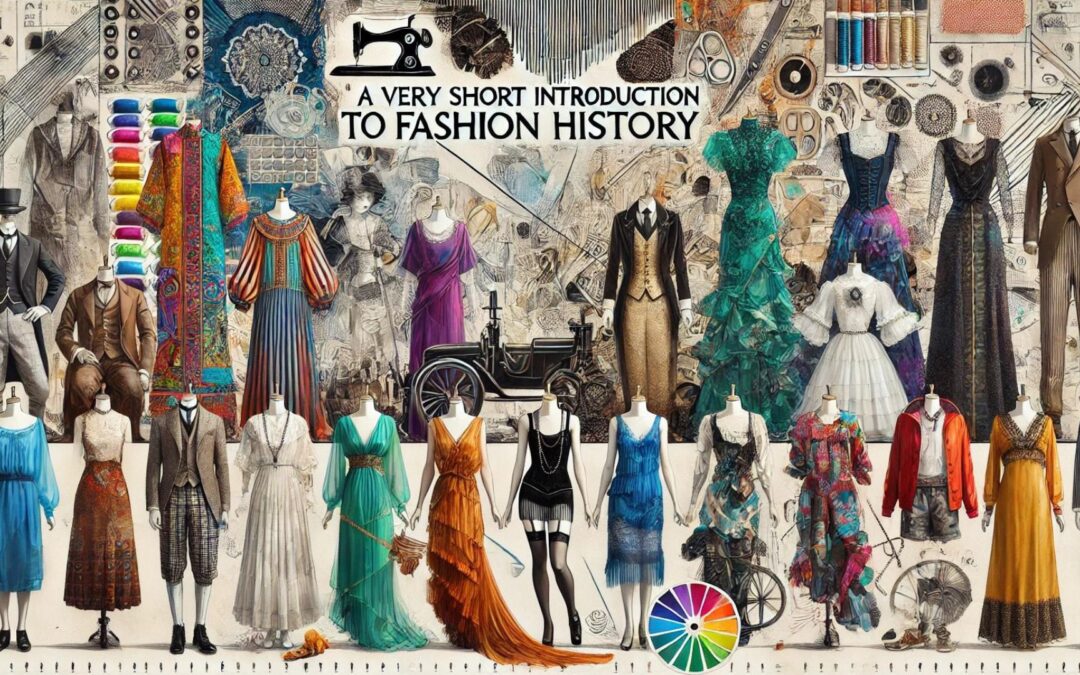
From Togas to Trends: A Very Short Introduction to Fashion History
Aug 10, 2024 | Short Introductions
Dive into the fascinating journey of fashion history, from ancient togas to modern trends. Discover how cultural shifts have shaped what we wear and why understanding this evolution is crucial for appreciating today’s fashion.

Understanding the Nature of Love: A Deep Dive into Human Connection
Aug 9, 2024 | Spotlights Shorts
Explore the complex nature of love, from its psychological and biological roots to its cultural impact, and discover what makes love a powerful human experience.

Exploring the Depth and Beauty of Pablo Neruda’s Poetry
Aug 9, 2024 | Poetry Shorts
Discover the profound and evocative world of Pablo Neruda’s poetry, exploring themes of love, nature, and political passion that have influenced readers worldwide.
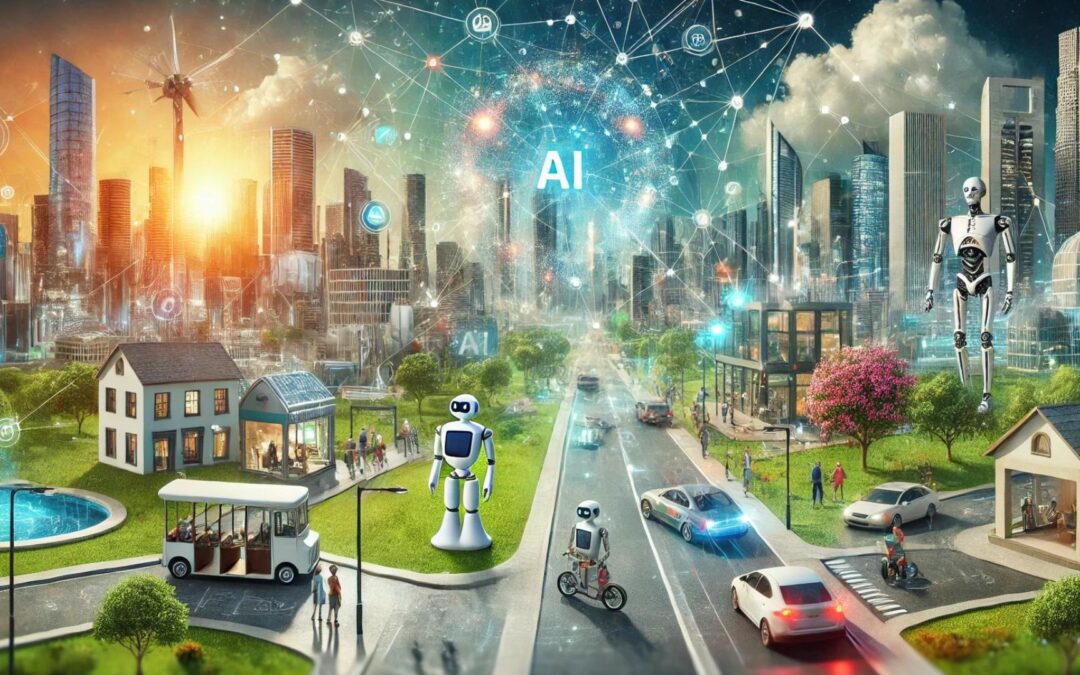
Listening Comprehension | Artificial Intelligence and Its Impact
Aug 8, 2024 | Focus on Listening
Explore the exciting world of artificial intelligence in this engaging lecture for high-intermediate to advanced English learners. Discover how AI impacts our daily lives, its potential benefits, and the ethical challenges it poses. Learn about the future of AI and its role in shaping our world. Keyword: Artificial Intelligence.
- Crossword Puzzles in Context (176)
- Common Mistakes in English (5)
- Cultural English (7)
- English For Specific Purposes (3)
- Focus on Business (8)
- Focus on Grammar (8)
- Focus on Literature (7)
- Focus on Skills (7)
- Focus on Speaking (7)
- Focus on Vocabulary (8)
- Focus on Writing (7)
- Grammar And Vocabulary (6)
- Idiomatic Expressions (8)
- Listening and Speaking (3)
- Reading and Writing (3)
- Common Mistakes in English (14)
- Countries (15)
- Grammar (18)
- History (16)
- Literature (18)
- Science (19)
- Trivia (18)
- Vocabulary (17)
- English Expressions (53)
- English Usage (14)
- Flash Facts (50)
- Great Stories (21)
- Immortal People (22)
- Know Yourself (50)
- Poetry Shorts (40)
- Proverbs (87)
- Quotes (86)
- Spotlights Shorts (41)
- Word Power Shorts (50)
- A Very Short History of the World (16)
- Beyond Earth (2)
- Big Ideas Explained (13)
- Business Spotlights (43)
- Career Insights (28)
- Creative Writing Tips (21)
- Cultural Insights (28)
- Did You Know (27)
- Editorial (9)
- English Plus Multimedia (4)
- Fact or Fiction (22)
- Frequently Asked Questions (25)
- General Spotlights (10)
- Gods and Heroes (35)
- Grammar Galaxy (2)
- Health and Fitness (33)
- Her Story (2)
- History Spotlights (47)
- Lessons from Everything (4)
- Let's Get Creative (1)
- Lifelines (7)
- Literary Echoes (41)
- Magazine Series (1)
- Mysteries Revealed (26)
- Planet Earth (22)
- Curriculum Development (4)
- Education Policy (4)
- Education Spotlights (38)
- Educational Technology (10)
- Higher Education (2)
- Language Learning Strategies (5)
- Learning and the Brain (12)
- Parent and Community (14)
- Teacher Development (4)
- Teaching Strategies (1)
- Podcasting (2)
- Polyglot (1)
- Science Spotlights (52)
- Short Introductions (184)
- Social Spotlights (53)
- The Journey Within (59)
- Top Ten (12)
- War and Peace (31)
- 101 Series (1)
- Ask Danny (1)
- Bonus Episodes (1)
- Business English (44)
- Common Mistakes (7)
- Discussions (5)
- Down to Business (3)
- Education for All (1)
- English Express (21)
- English in Context (1)
- English Plus in Action (1)
- English Plus Show (1)
- Fantastic Guest (4)
- Grammar (41)
- History (22)
- Know Thyself (2)
- Let's Talk Literature (5)
- Magazine Spotlights (1)
- Masterclass (3)
- Mythology (20)
- Our Story (1)
- Podumentary (2)
- Poetry (33)
- Pronunciation (4)
- Real Conversations (7)
- Science (20)
- Society and Culture (9)
- Stories (34)
- Technology (1)
- The Daily Digest (22)
- The Universe (1)
- Vocabulary Building (114)
- Vocabulary in Context (2)
- Vocabulary Voyages (3)
- Word Power (87)
- Writing (4)
- Featured Articles (13)
- Focus on Listening (4)
- Red Dead Redemption (1)
- The Last of Us (2)
- The Odyssey (1)
- Old Audio Series (6)
- Premium Episodes (5)
- Modern Business Essentials (4)
- Super Special Posts (1)
- Arts and Literature (6)
- Immortal Books (8)
- Immortals (6)
- Ink & Ashes (1)
- Literary Spotlights (1)
- Myths and Legends (8)
- NonFiction (1)
- Phoenix Poetry (3)
- Poet Diary (1)
- Poetry for Everyone (6)
- Project Orpheus (1)
- Short Stories (2)
- Short Stories for Everyone (5)
- Writing Tips and Techniques (9)
Pin It on Pinterest
Get the Reddit app
CSCareerQuestions is a community for those who are in the process of entering or are already part of the computer science field. Our goal is to help navigate and share challenges of the industry and strategies to be successful .
If I become a software engineer am I gonna have to make presentations?
Just figuring out how much therapy I'm gonna have to do to face my problems 🙃
For real though. I'm taking intro to software engineering and one of our assignments is a group presentation on a DevOps tool, and I hate presenting things. Like to the point where every time I look at this assignment I'm filled with resentment for the instructor and anxiety for myself. It doesn't help that my groups chosen topic already screwed us up earlier in the semester because it was required for an assignment without the instructor bothering to tell us anything about it.
What I'm trying to piece together in my brain is a connection between this stress and an understanding of whether or not this stress is worth it. I understand the stress of other assignments, of math class, etc. Learning skills necessary for the job I want. I can't make a connection between presentations in front of a class, and a necessary skill for being a developer. Can you guys offer some perspective?
By continuing, you agree to our User Agreement and acknowledge that you understand the Privacy Policy .
Enter the 6-digit code from your authenticator app
You’ve set up two-factor authentication for this account.
Enter a 6-digit backup code
Create your username and password.
Reddit is anonymous, so your username is what you’ll go by here. Choose wisely—because once you get a name, you can’t change it.
Reset your password
Enter your email address or username and we’ll send you a link to reset your password
Check your inbox
An email with a link to reset your password was sent to the email address associated with your account
Choose a Reddit account to continue

IMAGES
COMMENTS
Here's a short career day presentation, geared towards elementary school kids. I explore things like, what does a software engineer do, salary, and famous so...
Software Developer Career Day Presentation for Elementary School. September 12, 2020. Tricks n Techniques. Last year I participated in a Career Day at school to show what Software Developer is and what they do. I created PowerPoint to make it interesting for the 1st grade kids. Presentation ended with an interactive programming session in which ...
Here's my version 2 of ideas. Start with "Software is eating the world", like the Andressen article, use examples of how software is used all kinds of industries. Segue into "AI/Data science is eating software". Equipment and techniques are going to make this a big part of software for the future.
Career Day - Engineering for Elementary Ages. May 24, 2016 • Download as PPT, PDF •. 16 likes • 21,427 views. Michael Fork. Follow. Engineering Career Day presentation for elementary aged children that can be adapted to most engineering professions. Read more. 1 of 38. Download now.
Also, your presentation should be dependent on grades. The essence of an outline is to tailor the presentation to fit the kids' age and comprehension levels. Here is a general presentation outline for software engineering career day. Define programming in the most basic ways ever. Programming for kids can be relayed in multiple ways. Endeavor ...
Apr 28, 2017 • Download as PPTX, PDF •. Career Day presentation at Farragut Elementary school, April 2017. The presentation walks students through some applications of software engineering and how it impacts our everyday lives. Engineering Career Day presentation for elementary aged children that can be adapted to most engineering professions.
Features of this template. Contains easy-to-edit graphics such as graphs, maps, tables, timelines and mockups. Includes 500+ icons and Flaticon's extension for customizing your slides. Designed to be used in Google Slides, Canva, and Microsoft PowerPoint. 16:9 widescreen format suitable for all types of screens.
student feedback from last year, consider the following talking poin. :Briefly introduce yourself (schools, internships, first jobs, etc.).Share obstacles you encountered a. be taking in school such as math, business, technology courses, etc. Share any helpful advice that you wish you learn. ication, critical thinking, problem solving, teamwork ...
Senior software engineers are often asked to speak at conferences and company events. It can be nerve wracking, but with this guide you can grow your public speaking skills and halt those nerves. ... So if you have a presentation that day, ... Career. August 14, 2024. How to Have an Effective 1-on-1 Meeting. Career. August 14, 2024. Fully ...
These are the best tips, tricks, and advice for speakers at an elementary school career day. The speech and presentation ideas are collected from educators, colleagues, friends, and my own experience. You'll read in this article about my learnings from hosting a career day, including: How to write your speech. What things to bring (props)
Free Google Slides theme, PowerPoint template, and Canva presentation template. Motivate students and help shape the future with these tech theme for career day slides, perfect as a Google Slides template, PowerPoint theme or Canva template. Share important trends, facts and figures, educational and career opportunities, and success stories.
Rachel Kolar (2018). Lessons from Elementary Schools Career Day, 2017 Edition. Retrieved from rachelkolar.com. Tim Hindle (1998).Making Presentations. Lisette Edgar. Speech Sprouts. Retrieved from speechsprouts.com. Nick Gray. (2024). 9 Career Day Speech and Presentation Ideas. Retrieved from nickgray.net. Carmine Gallo. (2014).
A Solid Path of Career Progression and Growth. A day in the life of a software engineer is important, but it doesn't necessarily paint the whole picture: each day contributes to an overall career and professional growth. As a software engineer, you'll have the opportunity to advance your career and earn more money as you gain experience.
Software engineers create, maintain, and improve computer programs. In an increasingly digital world, software engineers can find work in a variety of industries including computer systems design, software publishing, finance, and manufacturing. Software engineering roles require applicants to have computer coding knowledge, advanced analytical ...
Contact us for more information at 909-475-7726 or send an email. Inspire your students to pursue a career in technology with our highly entertaining presentations. Career topics include robotics, programming, gaming and more.
6) Bring a lot of swag. Of course, you cannot show up at career day empty handed. You have to bring some swag from your company. I brought a ton of ParkMobile stuff - koozies, lanyards, cups, pens, notebooks, etc., and these kids cleared me out.
Average salary for mid-level software engineers. Glassdoor reports an average base pay of $105,225 per year for mid-level software engineers in the US as of February 2024 [ 4 ]. The estimated additional annual pay for these roles is $18,440. Additional pay insights may include profit-sharing, bonuses, or commissions.
Welcome to the first episode of our brand-new series, 'Career Insights'. In this episode, your host Danny dives deep into the life of a Software Engineer. We kick things off with an overview of the typical day for a software engineer, exploring their morning routines, key tasks, and responsibilities. From coding to collaborating with other ...
Make a difference - be an engineer presentation 11-14 year olds: guide for presenters. Developed in collaboration with the main Professional Engineering Institutions and the Institute of Physics, and with input from teachers and volunteers this presentation introduces 11-13 year olds to engineering inspiring them to think about a career in ...
I'm in the final interview process with a company and I'm asked to present a software engineering project I've worked on. Last time I did something like this, I didn't get the job. So I'm seeking advice on how to present software engineering projects. Is there a standard way to do this?
ENGINEERING CAREER. Salaries vary depending on engineering discipline. Starting salaries between $55k ($26.50/hr) - $70k ($33.50/hr) Writing Reports & Emailing. Meetings.
Like any engineering presentation, you need to read the audience. 3rd graders are pretty low level, so you need to keep it really simple. Unless you run a day care center, you probably don't grasp how limited these young people are. They can handle simple physical stuff that you can understand by looking at it.
Mother and daughter duo Denise and Kay push aerospace innovation forward every day. Learn more. Tresha, Chief Engineer. Fascinated by kit airplanes as a child, Tresha is now chief engineer for the world's most efficient twin-engine jet. ... Discover how our Neurodiversity at Work program helped Thomas launch his software engineering career ...
Pretty much any white-collar profession will require communicating things to small/medium-sized grouped from time to time. Software engineering is no exception. Welcome to the real world, where no one cares if you have stage fright. The good news is that if you put in the work, you'll get over it. 4.